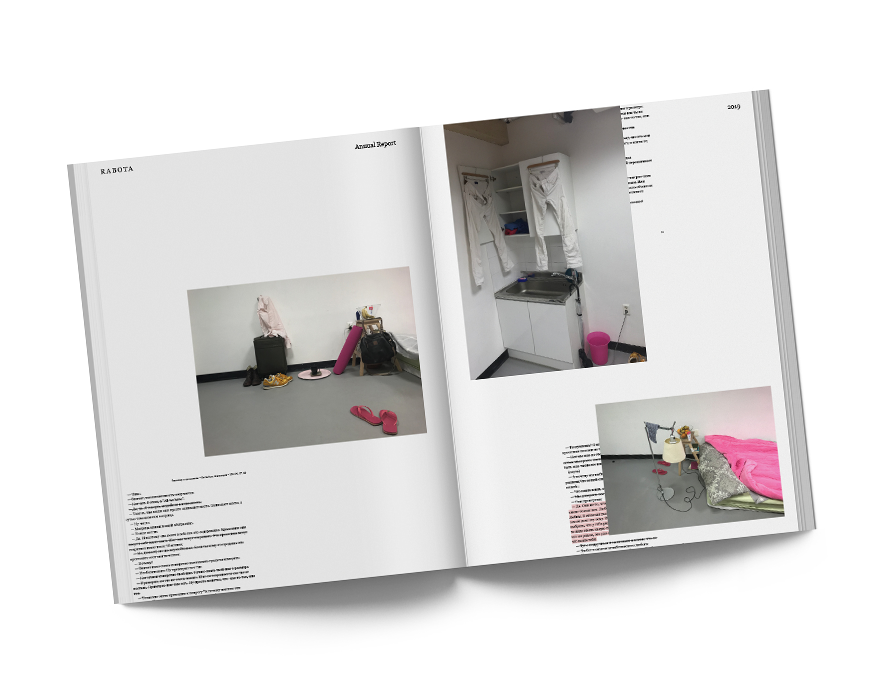
Annual Report
Since 2014 Anton and Marika have been publishing the annual report with verbatim and photo documentation of their nomadic artistic practice.
2024
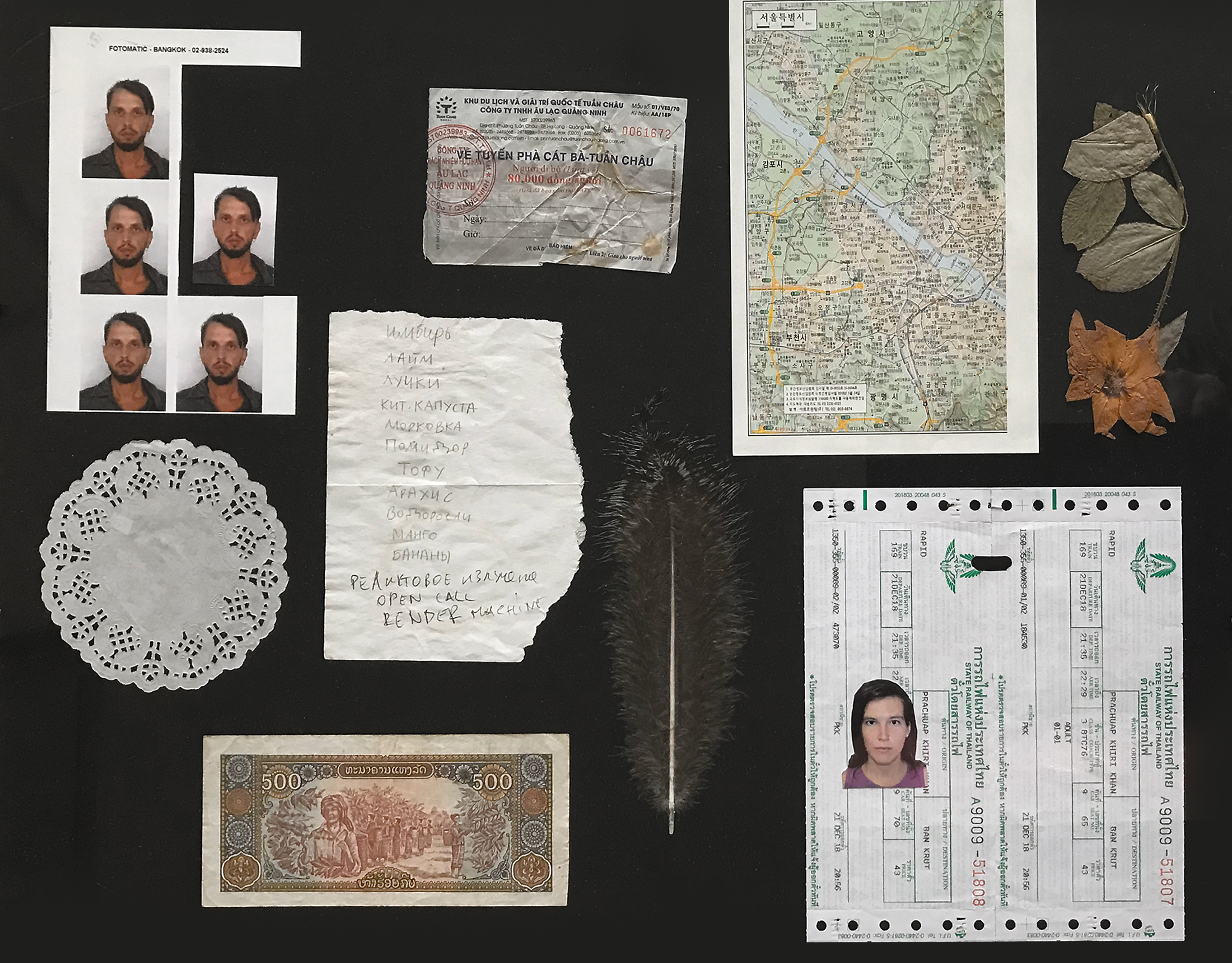
Music of Nonknowledge
Music of Nonknowledge was recorded, quite literally, in the wild on instruments made of rubbish found outdoors, in moments of complete suspension, with no sense of the future. Each track was an attempt to tackle Nonknowledge as an object, to see what lies behind it.
2024
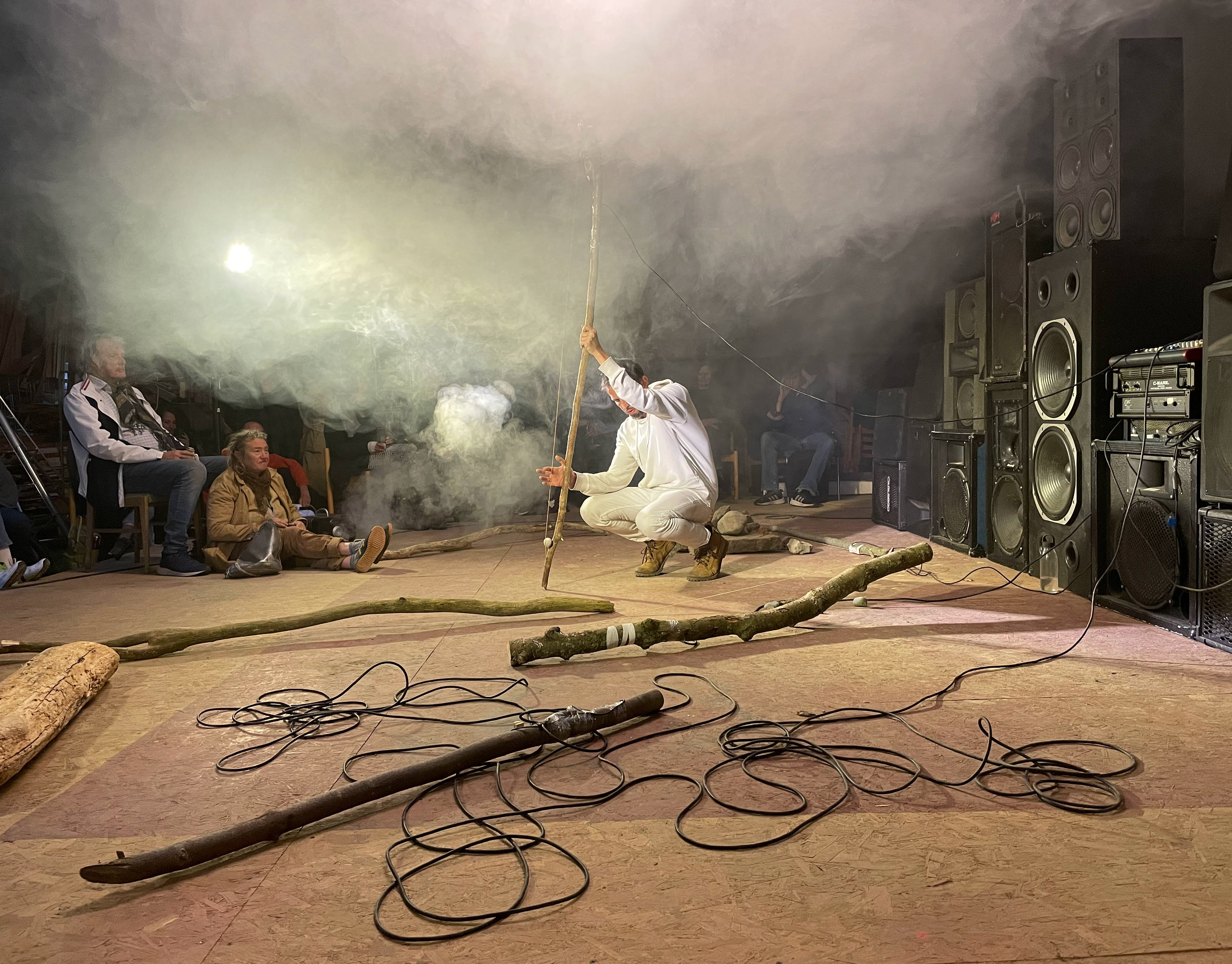
Moon
The Moon performative lecture was the last in a series of lectures on the Gylleboverket platform for contemporary art and film in the vicinity of the Swedish city of Simrishamn and took place in September 2022.
2022
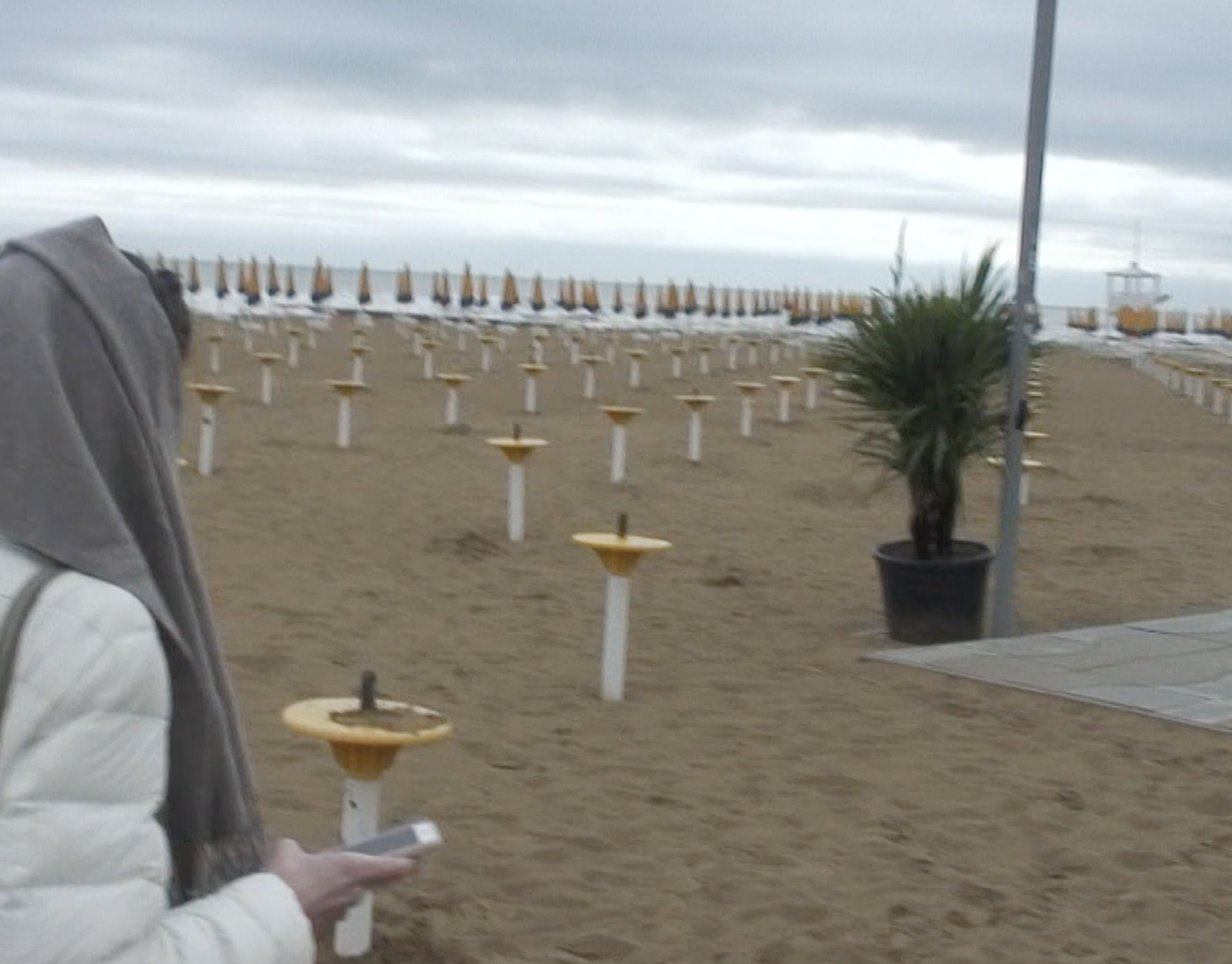
Meeting place for Aliens
Everything there seemed strange. We felt like people from another time and space, with completely different concerns and expectations.
2022
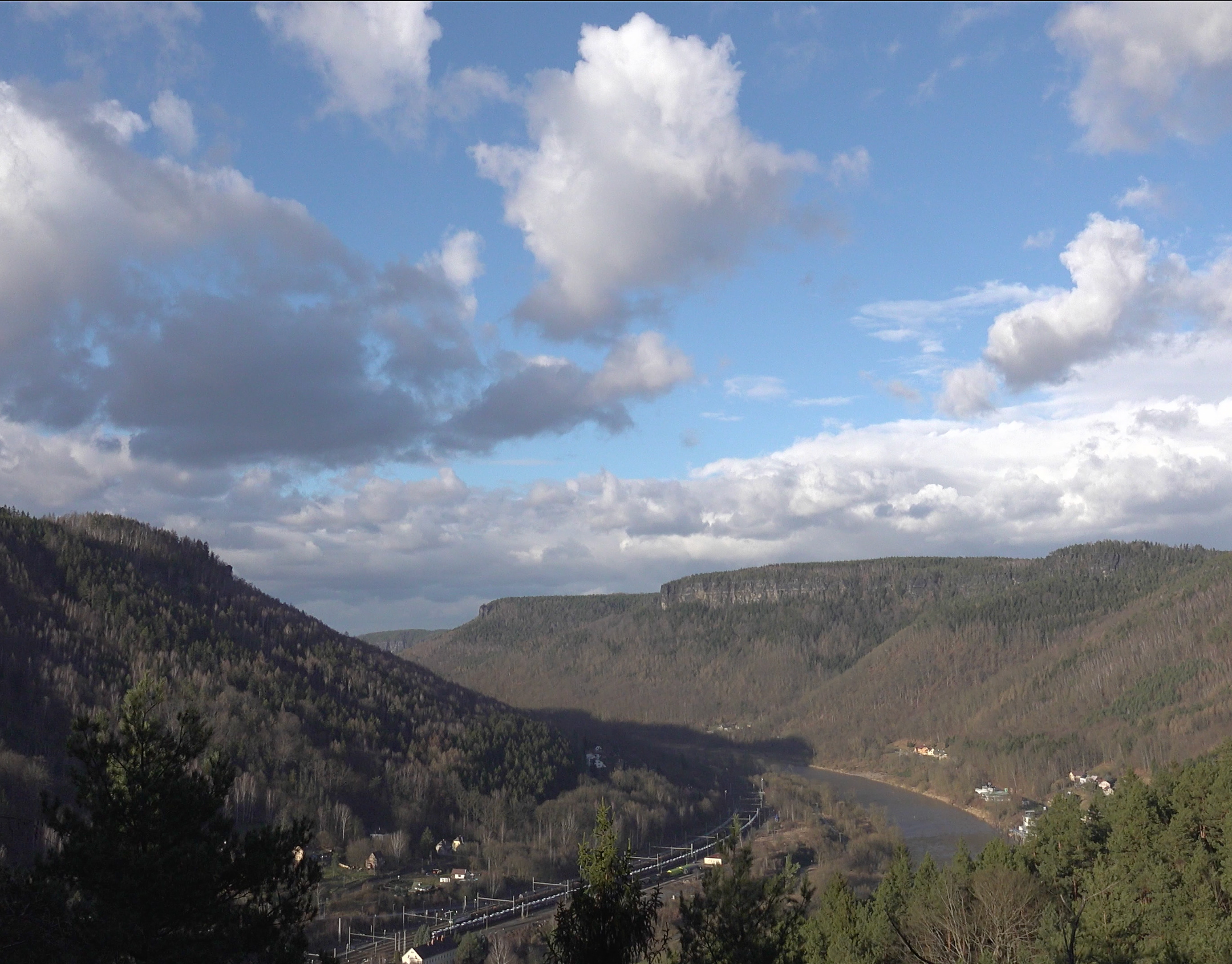
Borders
Suspended by C D Friedrich we used to go there to film that crop of the crazy view over Děčín having no idea what it was for. We started in the middle of February. Russian officials condemned the `West` in warmongering and disinformation, going to attack Ukraine one week later.
2022
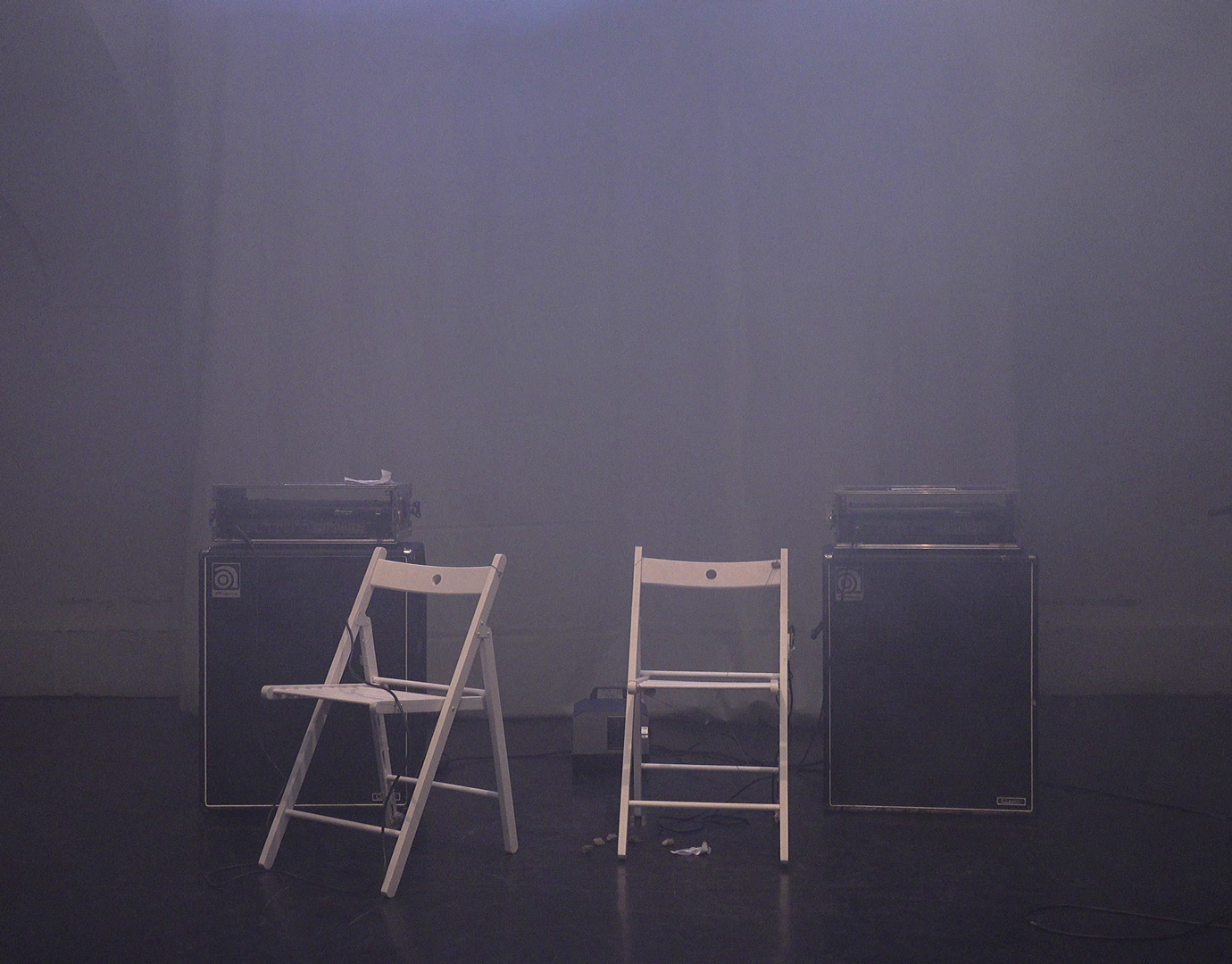
Now. the Lecture
Everybody knows Aristotle's aphorism: “Time either does not exist at all or barely exists”. But it seems that we don't have time now to think about time anymore. Stop. This thought itself is about time, and we have denoted it by the word Now. How long does it take to read it in such a way that word Now matches its meaning?
2021
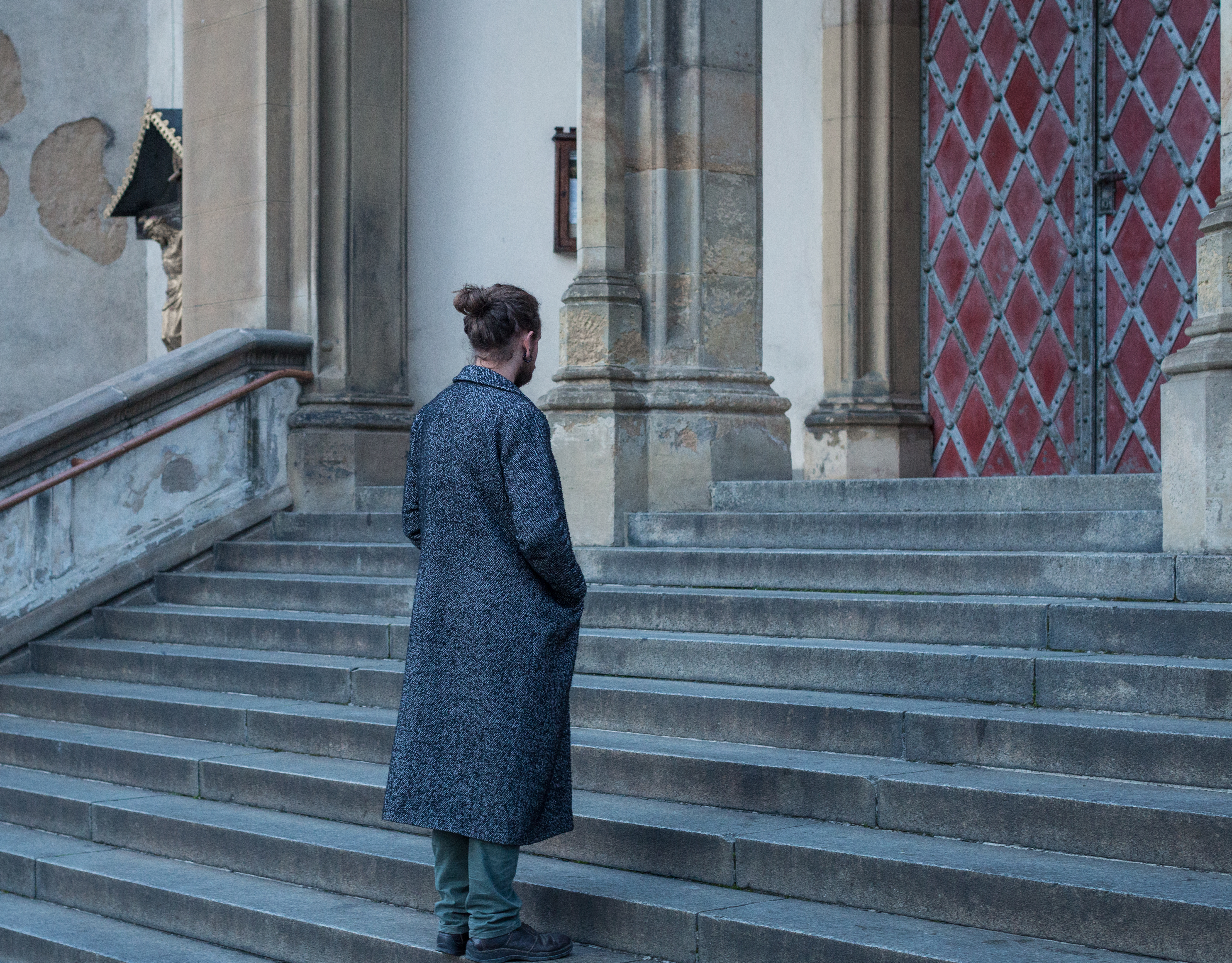
People
In the act of subjectivation, artistic practice and political action meet each other. Politics is realized as crystallization, at the basis of which we assume two elements: the place, blank space that anyone may take — on the one hand, and the subject himself, acquiring that subjectivity as a result of the performative act. In the core, we have an unoccupied structure of six places, which appear to be the room for such performativity.
2021
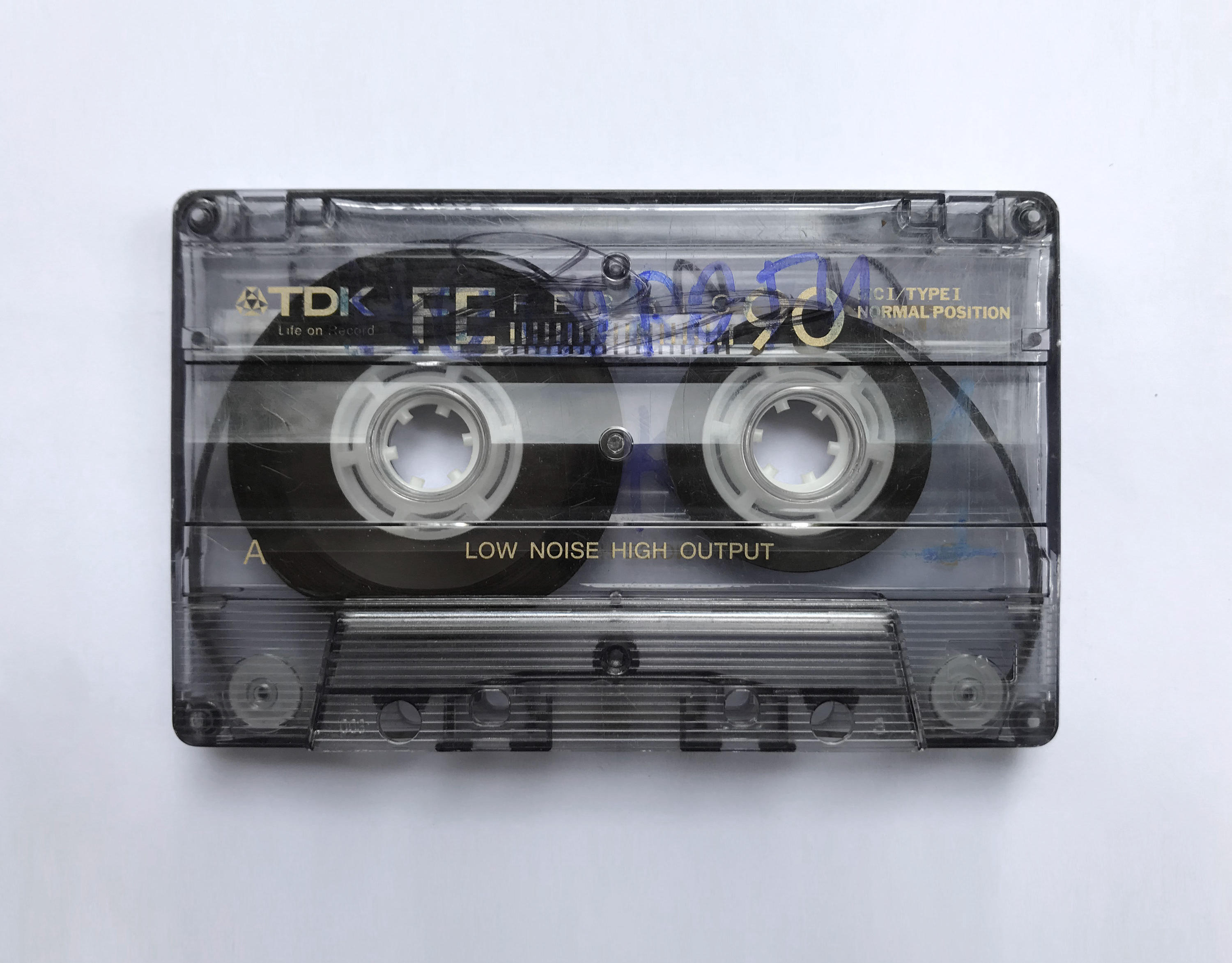
Release
We found this cassette in Anton's old suitcase abandoned in a cold garage in Minsk for more than ten years. On it, we discovered the master tape of an album, which Anton had been producing for almost two decades since the early nineties. The album was finally mixed to this cassette in 2010 and titled "Billion Yellow Birds." But now the tape crumbles off; the cassette was damaged by freeze and moisture.
2021
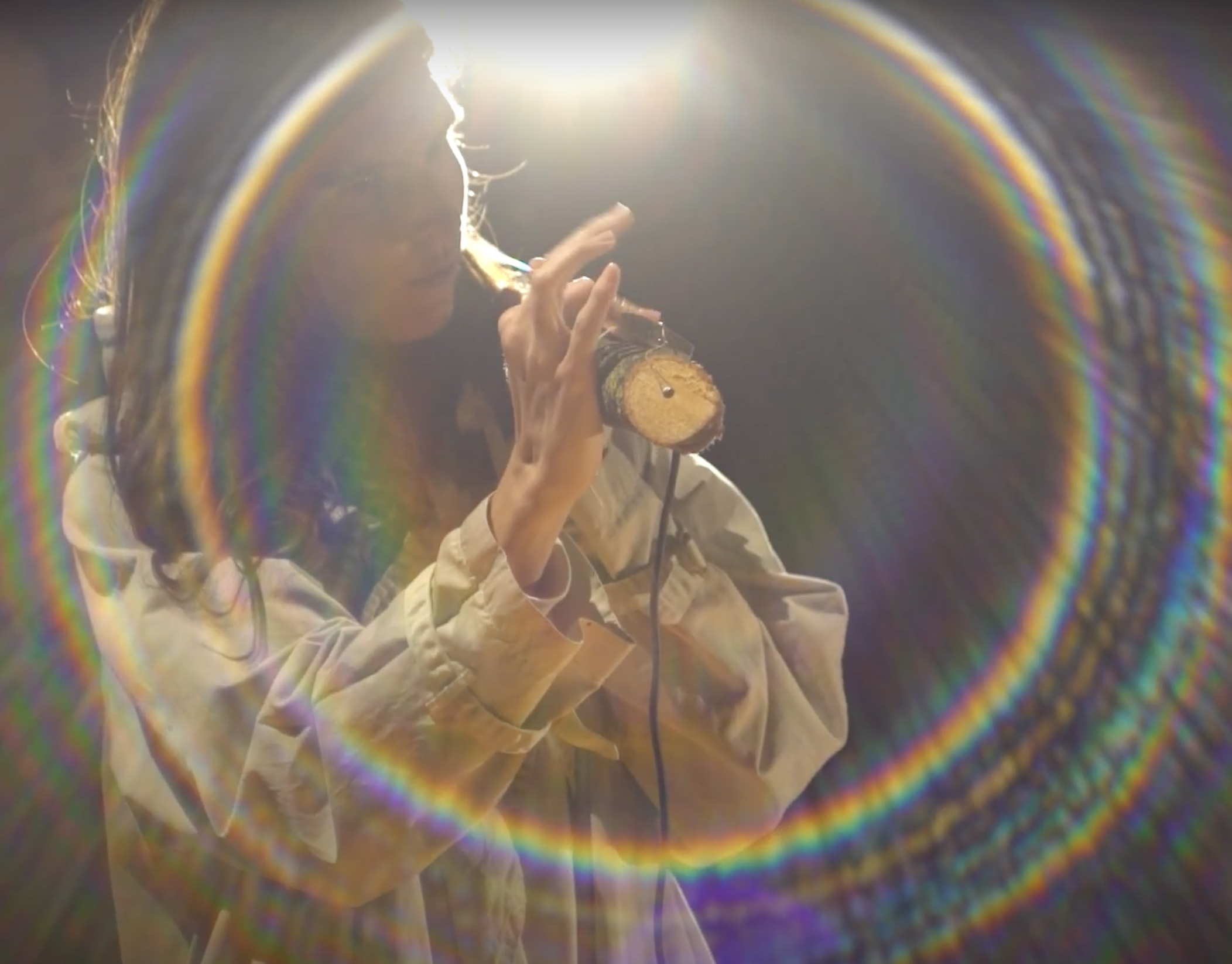
Fire
A&M install a sound vibration in space, extracting fan wave interference from electronic monochords, turning time and space into a place for an event. What can sound do? Sound manifests being. Reflecting on the future, it returns to us, waiting on stumps, bunks, and suitcases for the return of Proserpine.
2021
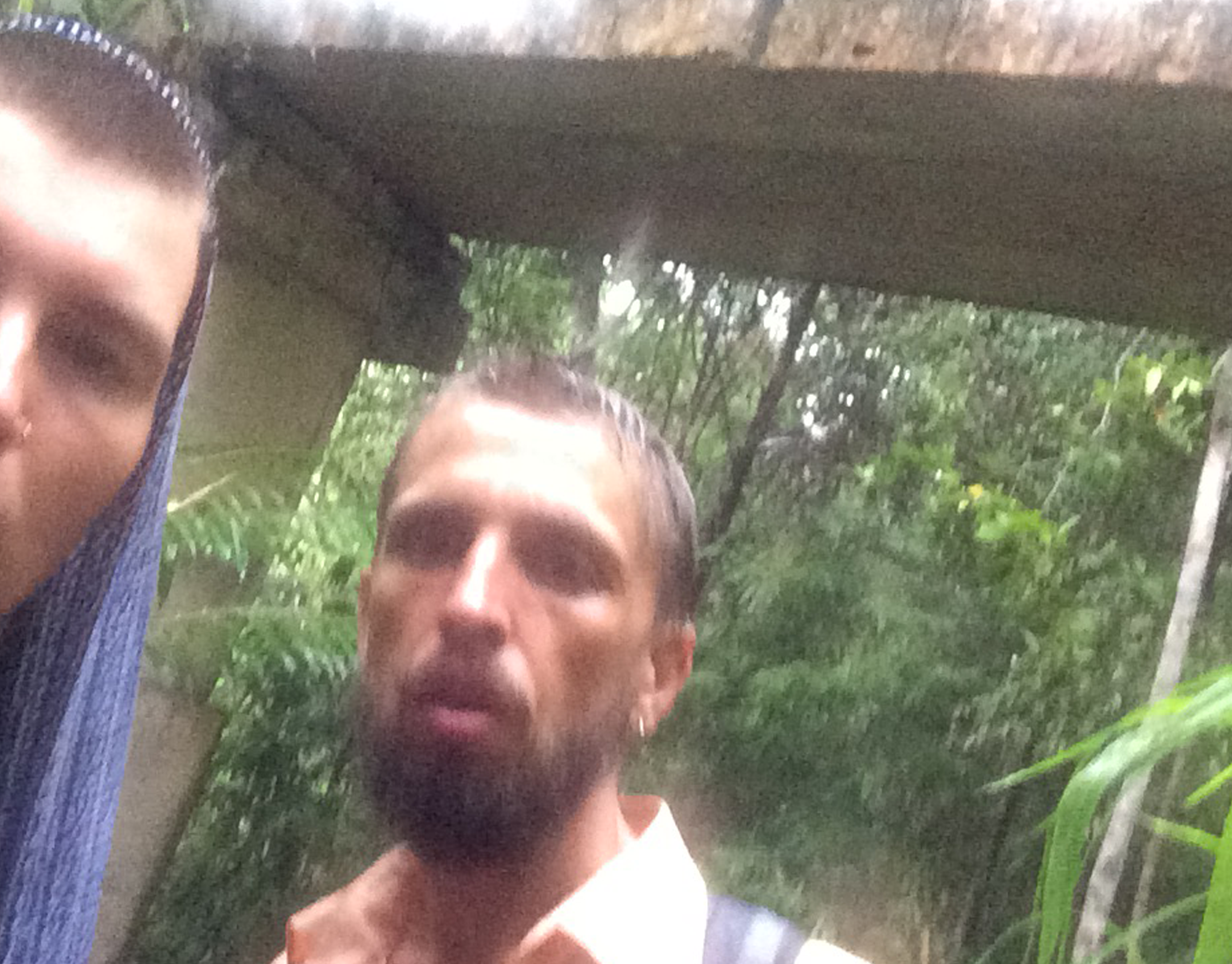
Surfers of Apocalypse
All people on Earth produce carbon dioxide and shoot short videos. We do the same. We drop such short videos, shot on a smartphone, into the archive. From that array, we render an endless random video stream. This stream can never be repeated, each time it presents a new version of the life.
2020
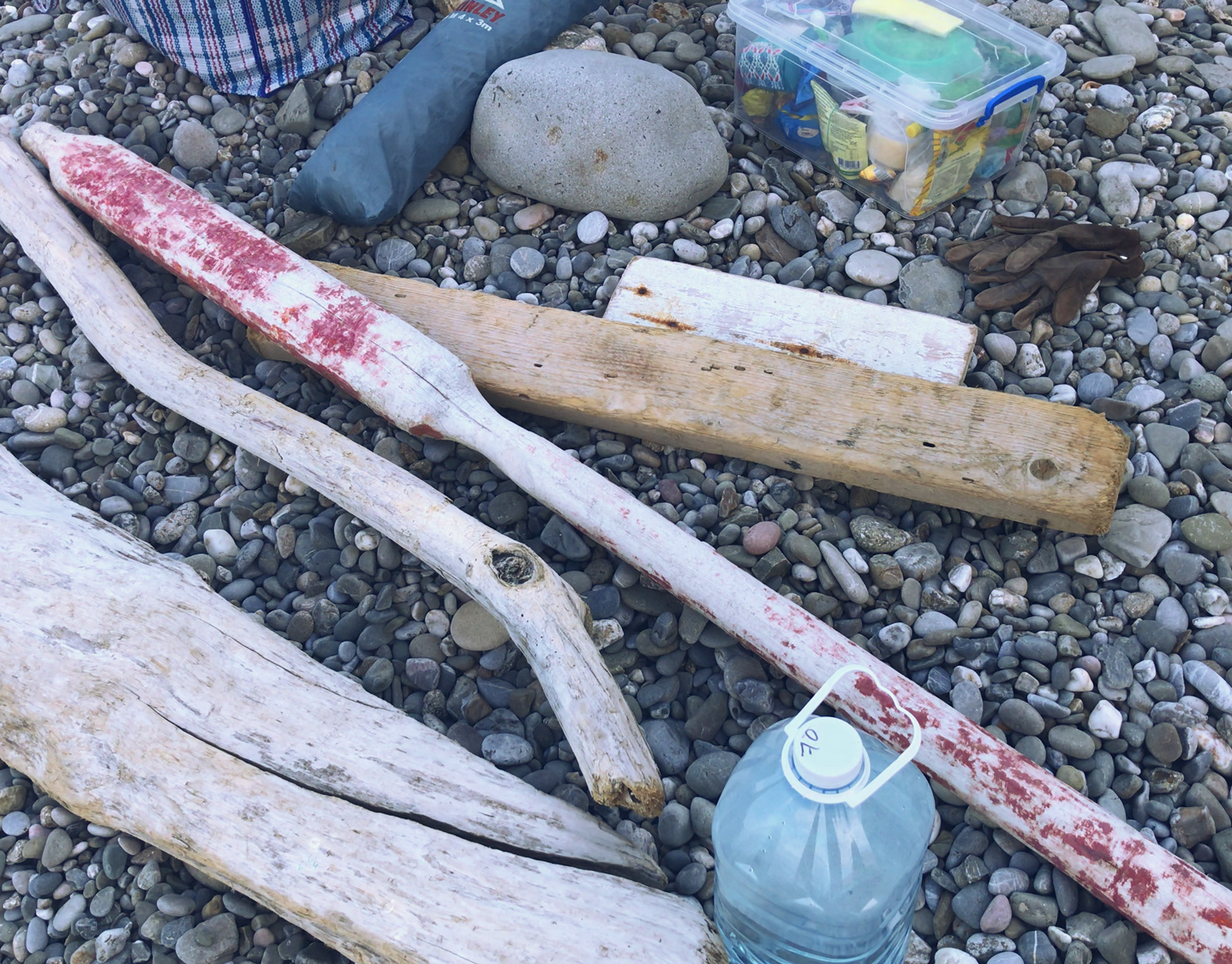
New World
New World is a performative expedition revealed by Marika and Anton during the COVID-19 pandemic crisis in 2020 in uninhabited badlands. In relevant circumstances, artists discovered the virtual labyrinth in the realm of the dead, where they were laying the tunnel communication.
2020
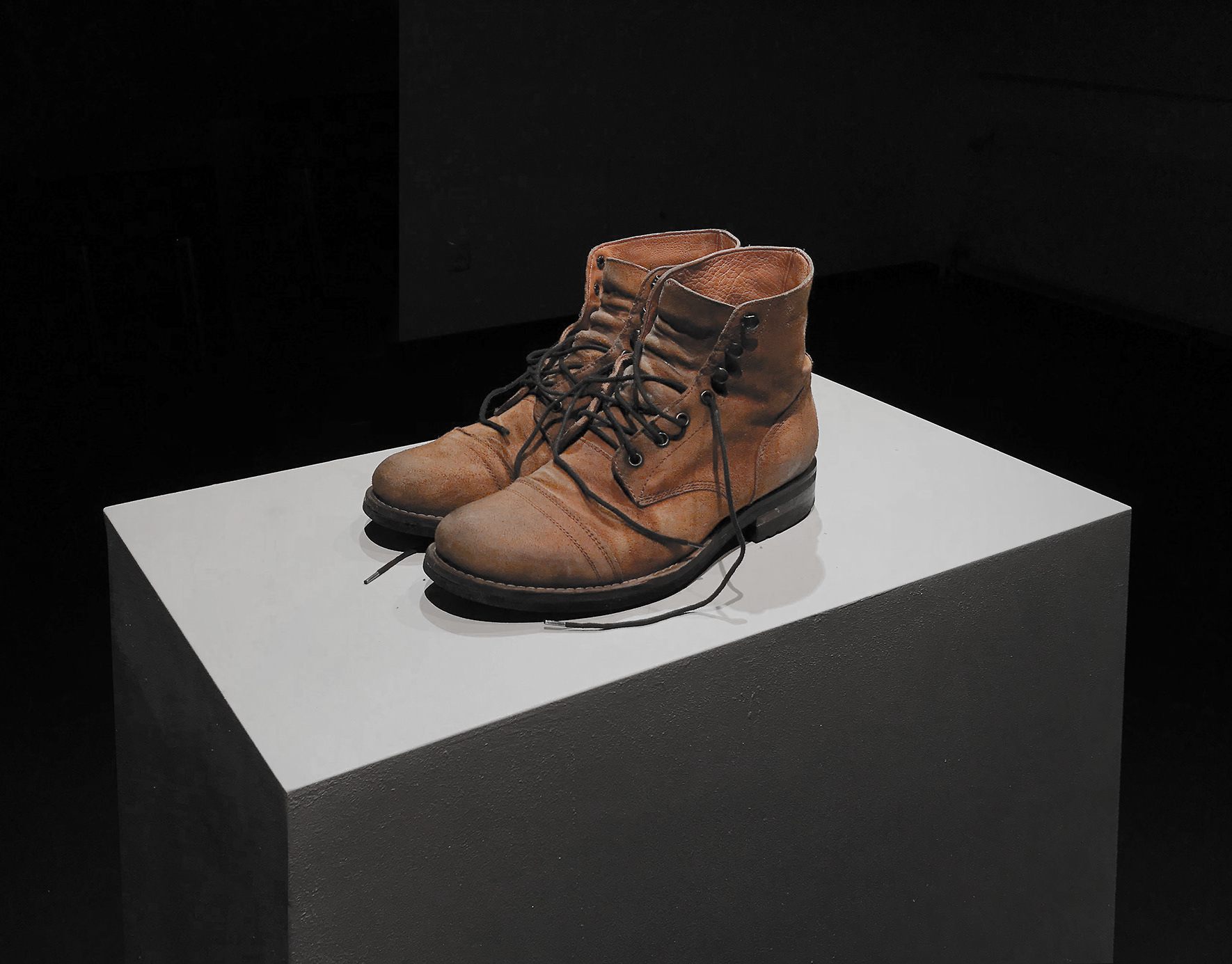
Whatever
In "Whatever" we are presenting a blank spot. Now this place is occupied by Anton's boots, next time it will be something else — it could be whatever.
2020
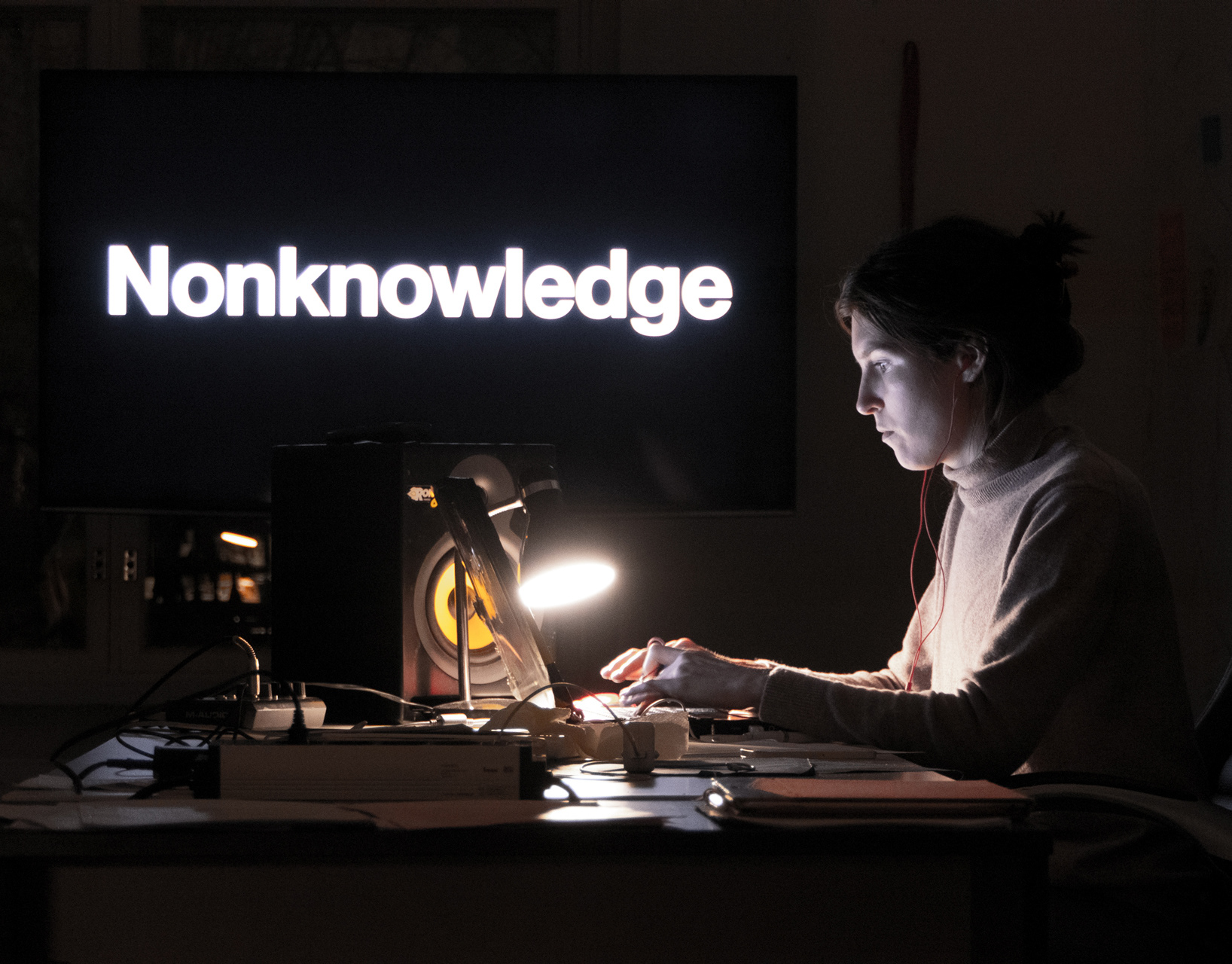
Office of Nonknowledge
Office of Nonknowledge represents a ritual producing a particular form of being. This video captures two-months-workflow footage that finally collapsed into one working day, bringing unexpected heroes to the forefront.
2020
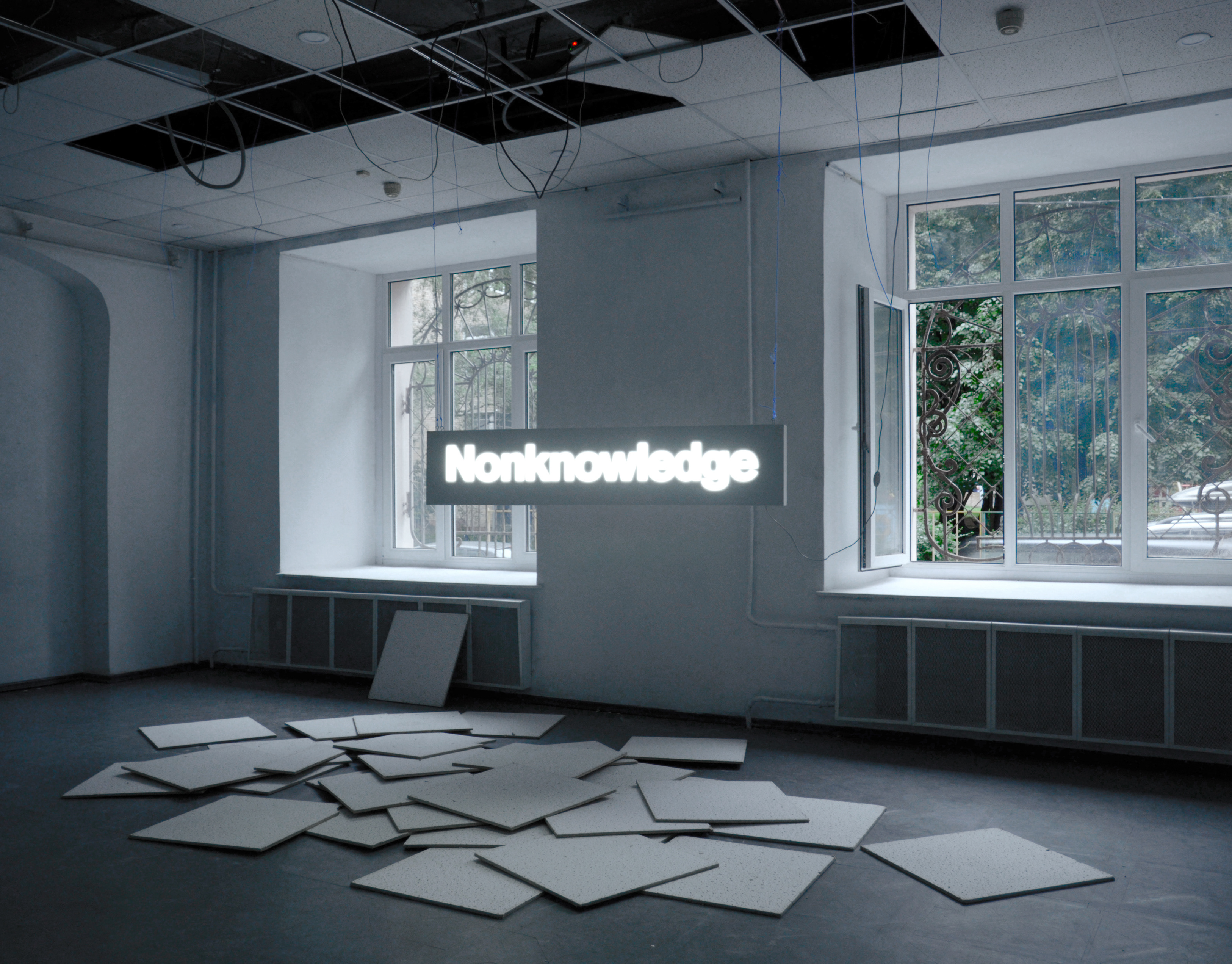
Penetration
Penetration installation was shown in Moscow during the solo exhibition in A3 gallery; artists just disassembled the sealing and hung up the lightbox.
2019
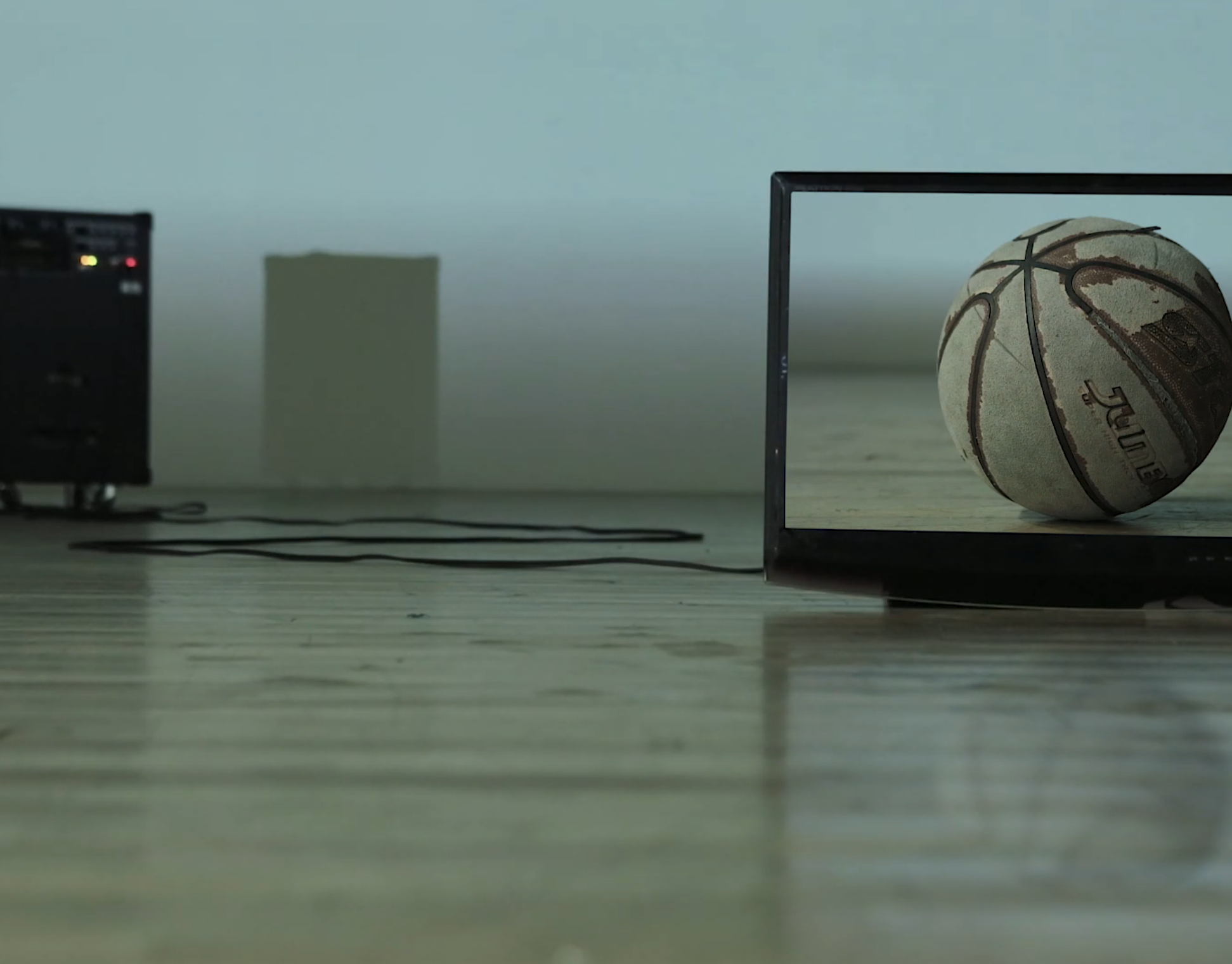
Ball
Ball is God, or God as a Ball? is a multimedia installation, artists employ a basketball found in the river for media manipulations to demonstrate the cognitive seam between various appearances (vision and sound) of the object.
2019
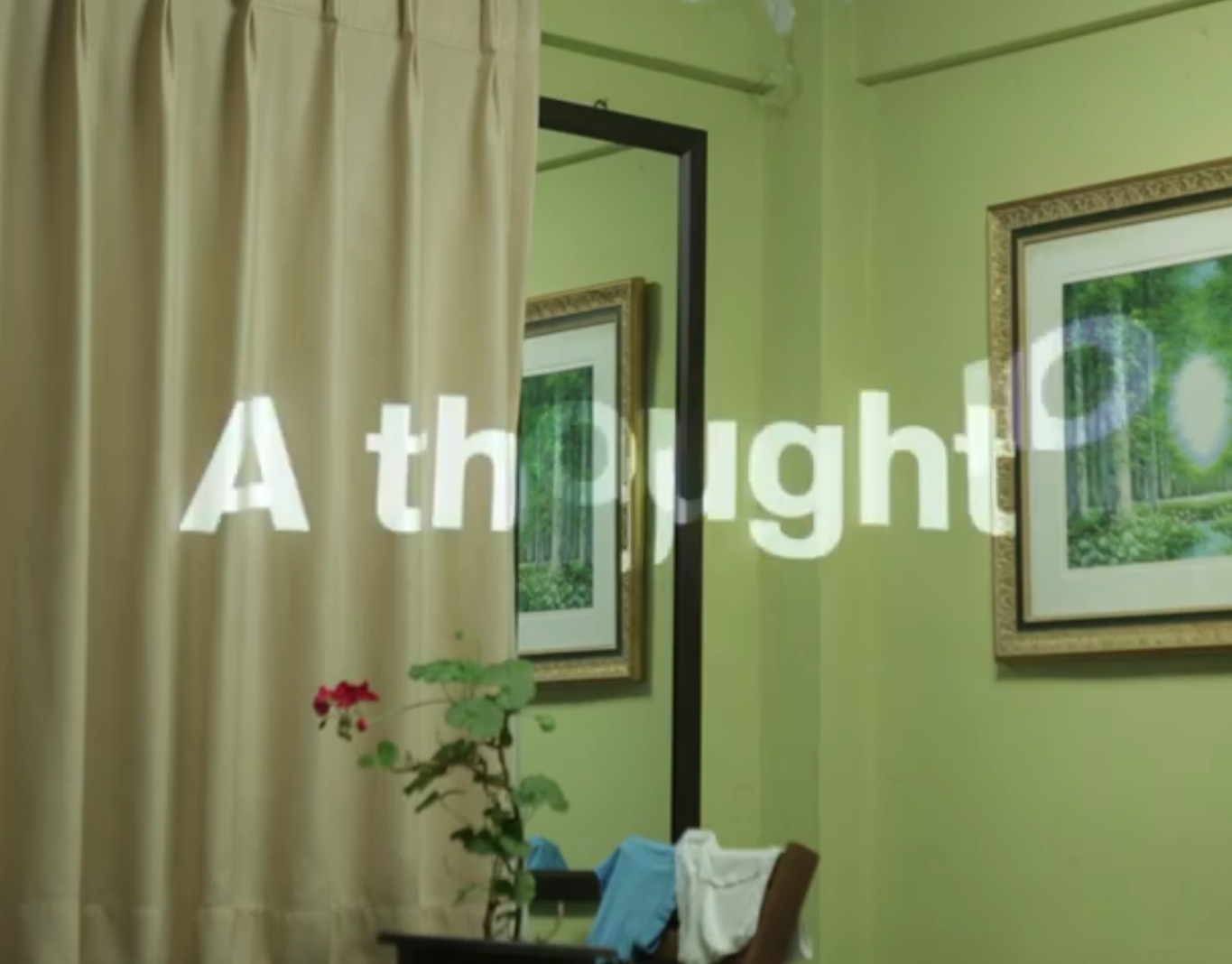
Room
Video projected on the wall captures the projection of the text on the wall in the same room: “A thought turns into a digital code. The code transforms into the light, then reflects from the object’s surface. Refracted light, being recoded again. Then, after a while, it is released into a wall of the room.”
2019
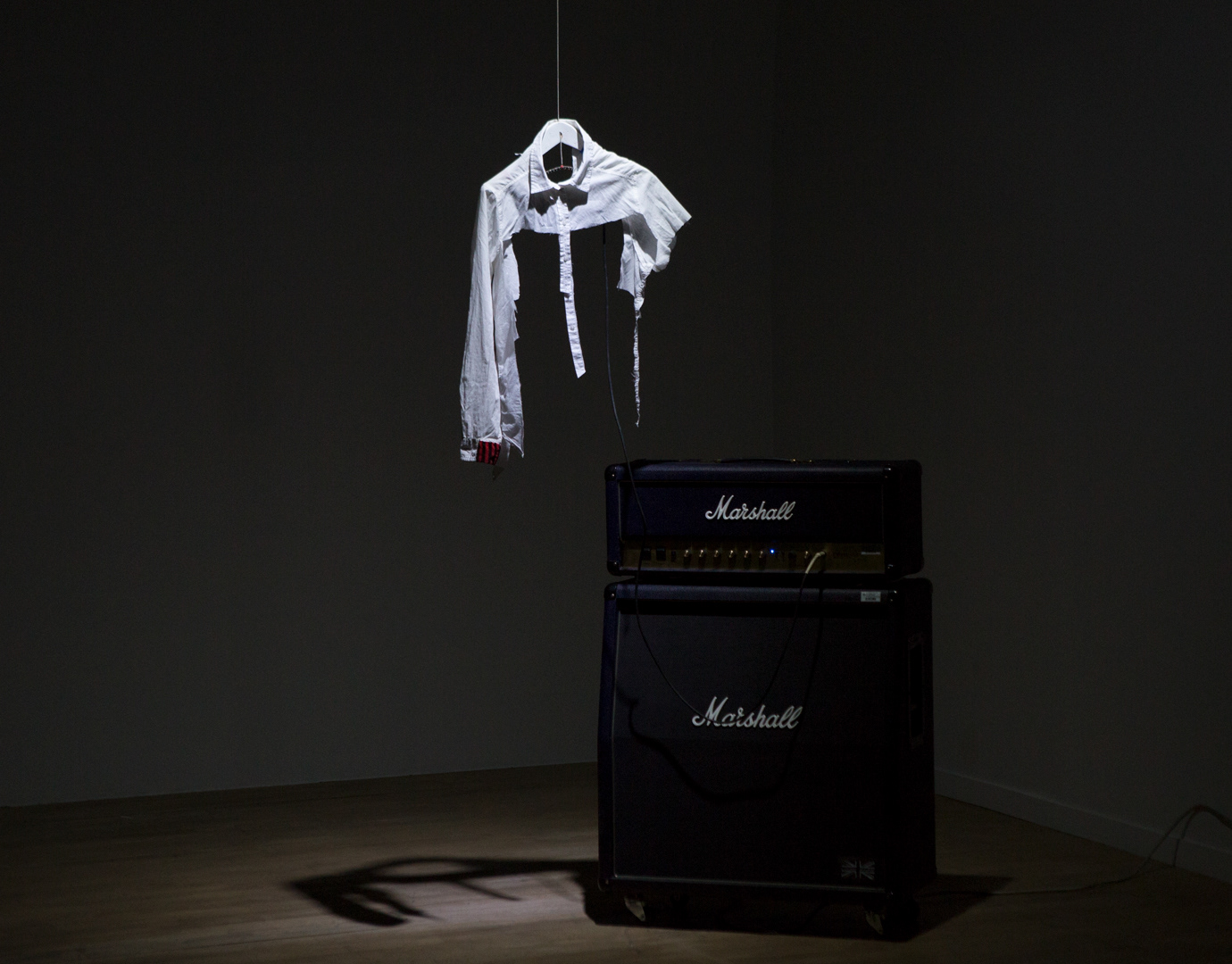
Anger is an Energy
The weak and sharp sound object was made from the shirt, which was cut into pieces for medical purposes, during the Indochina drift.
2019
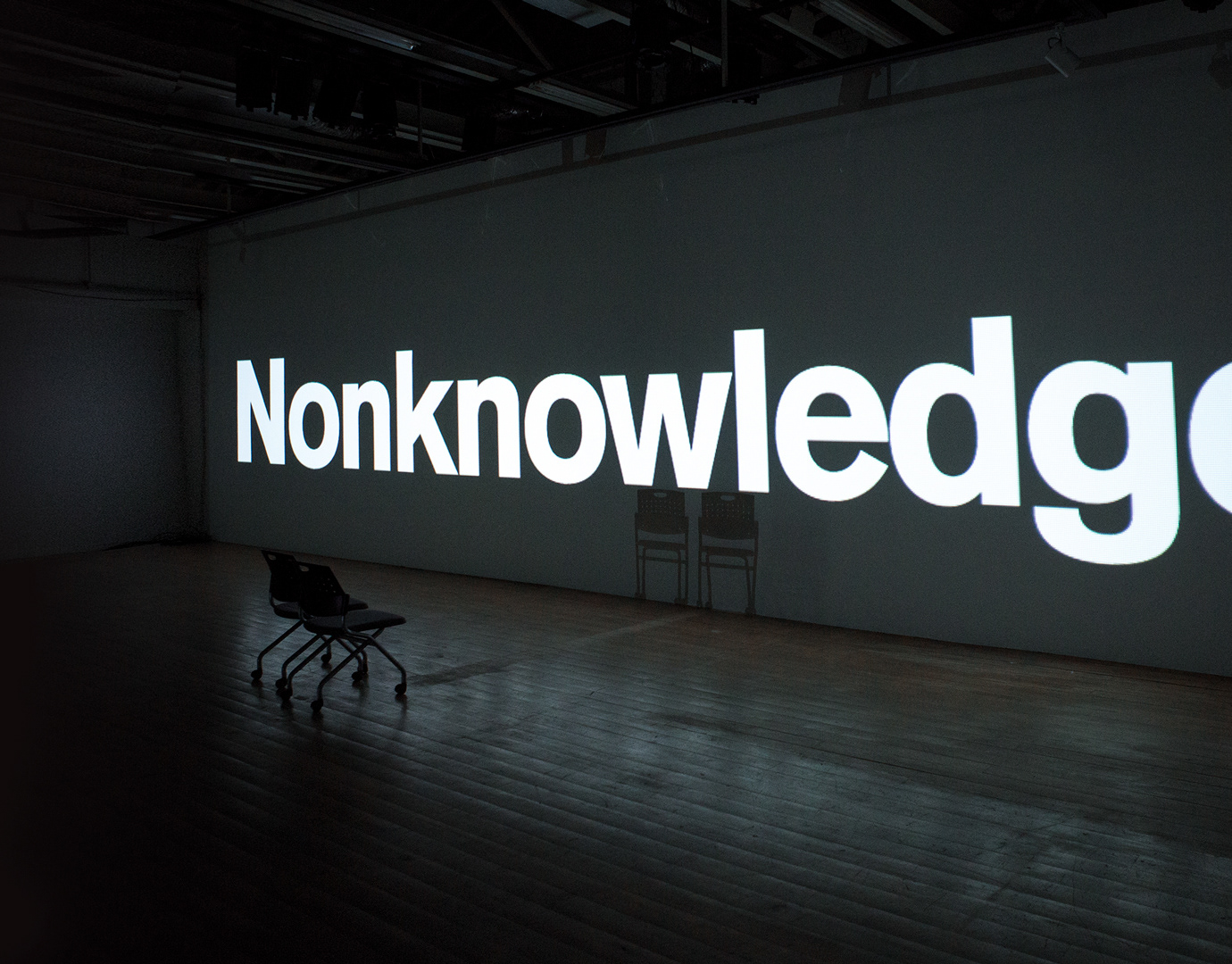
World Autonomous Residency
Maintaining the material and institutional autonomy provided by digital media and the principles of media asceticism, Marika Krasina, and Anton Kryvulia implemented a series of experiments and studies in spring 2019 in Seoul.
2019
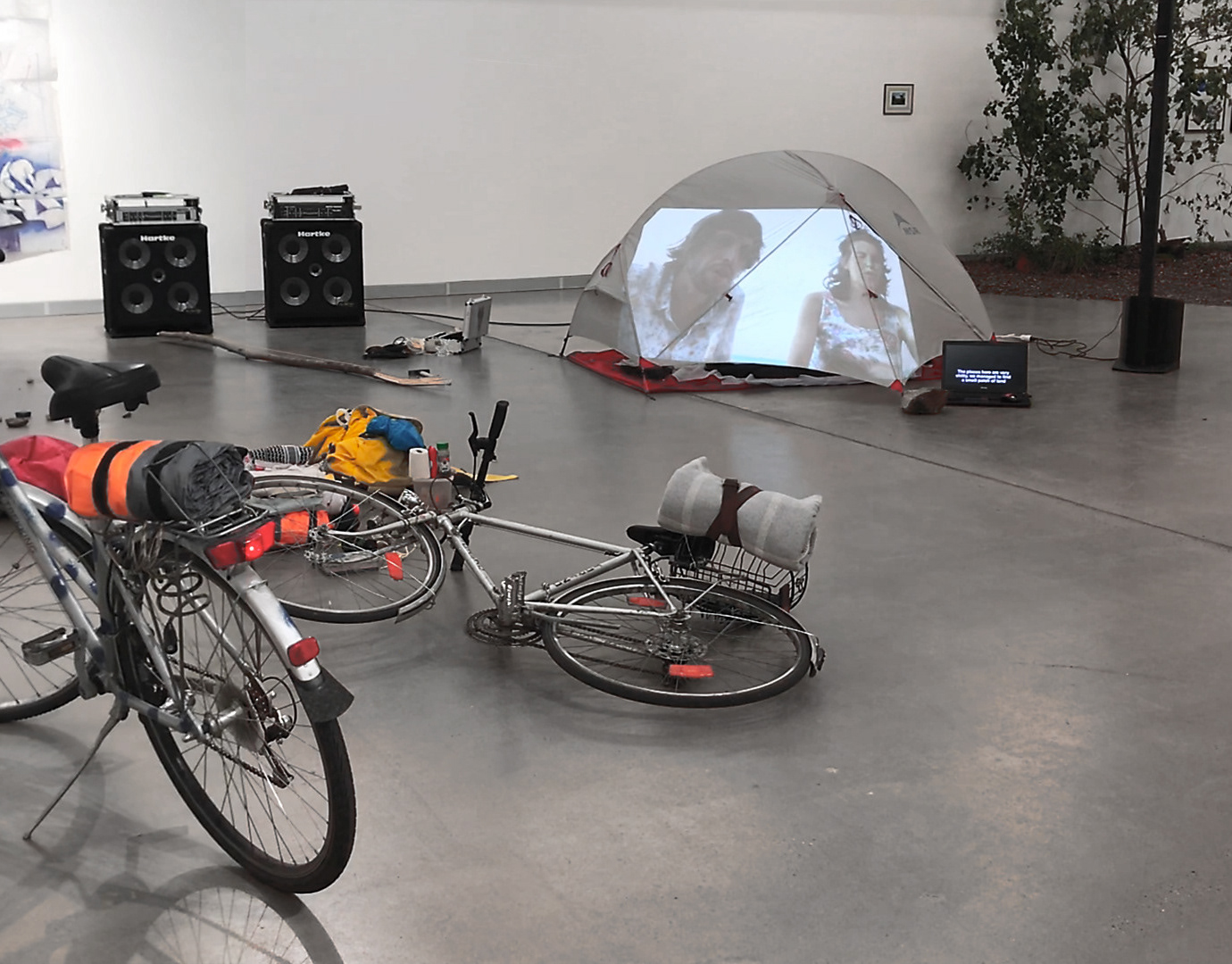
Metamorphosys
The route to the scene and artists' property served as a tool for the performative installation, presented in Mannheim in July 2018.
2018
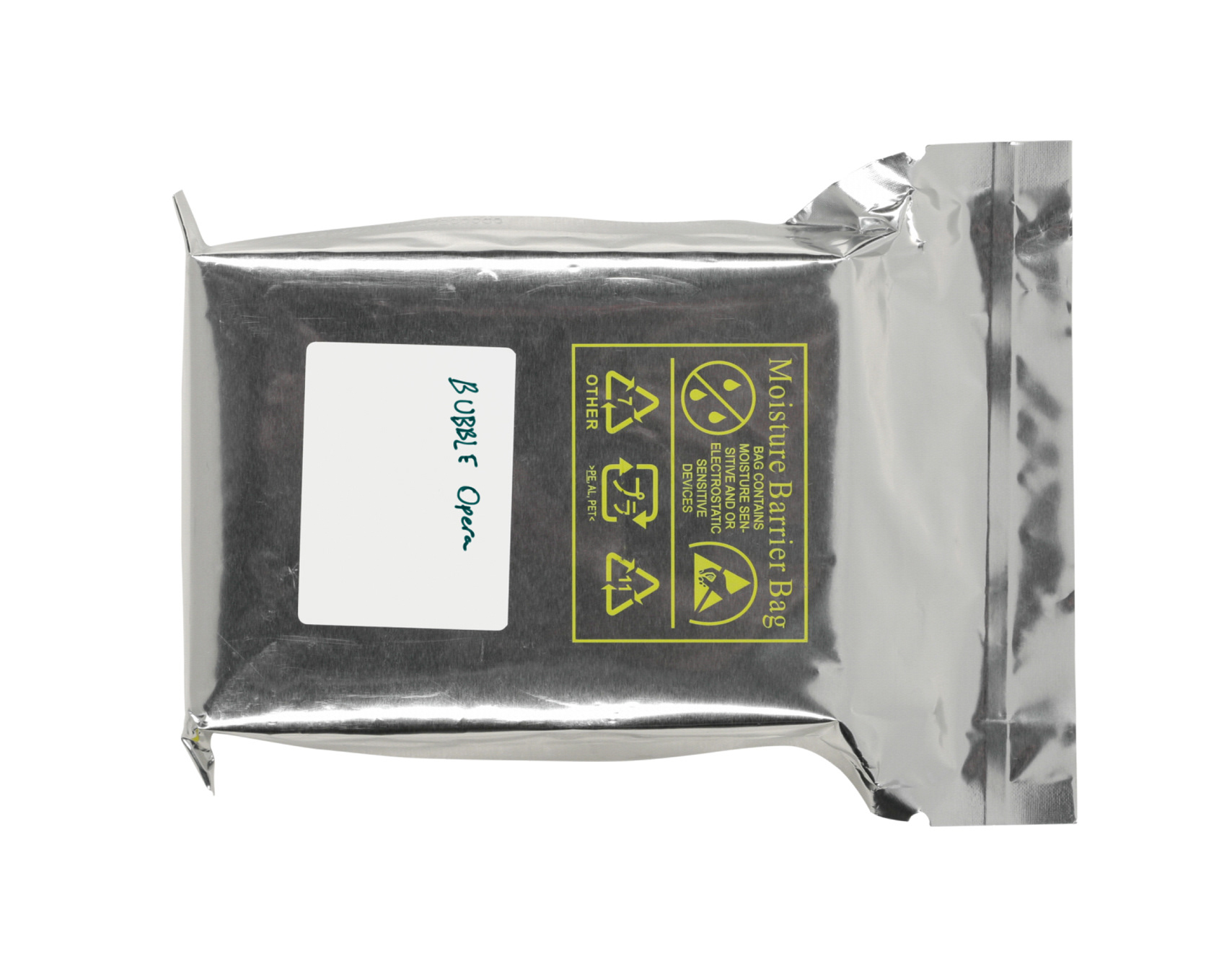
Intervention
Bubble Opera is a series of six performative acts implemented by the Rabota on the territory of ZKM/HfG in Karlsruhe, Germany in 2017-2018 as an institutional intervention.
2017
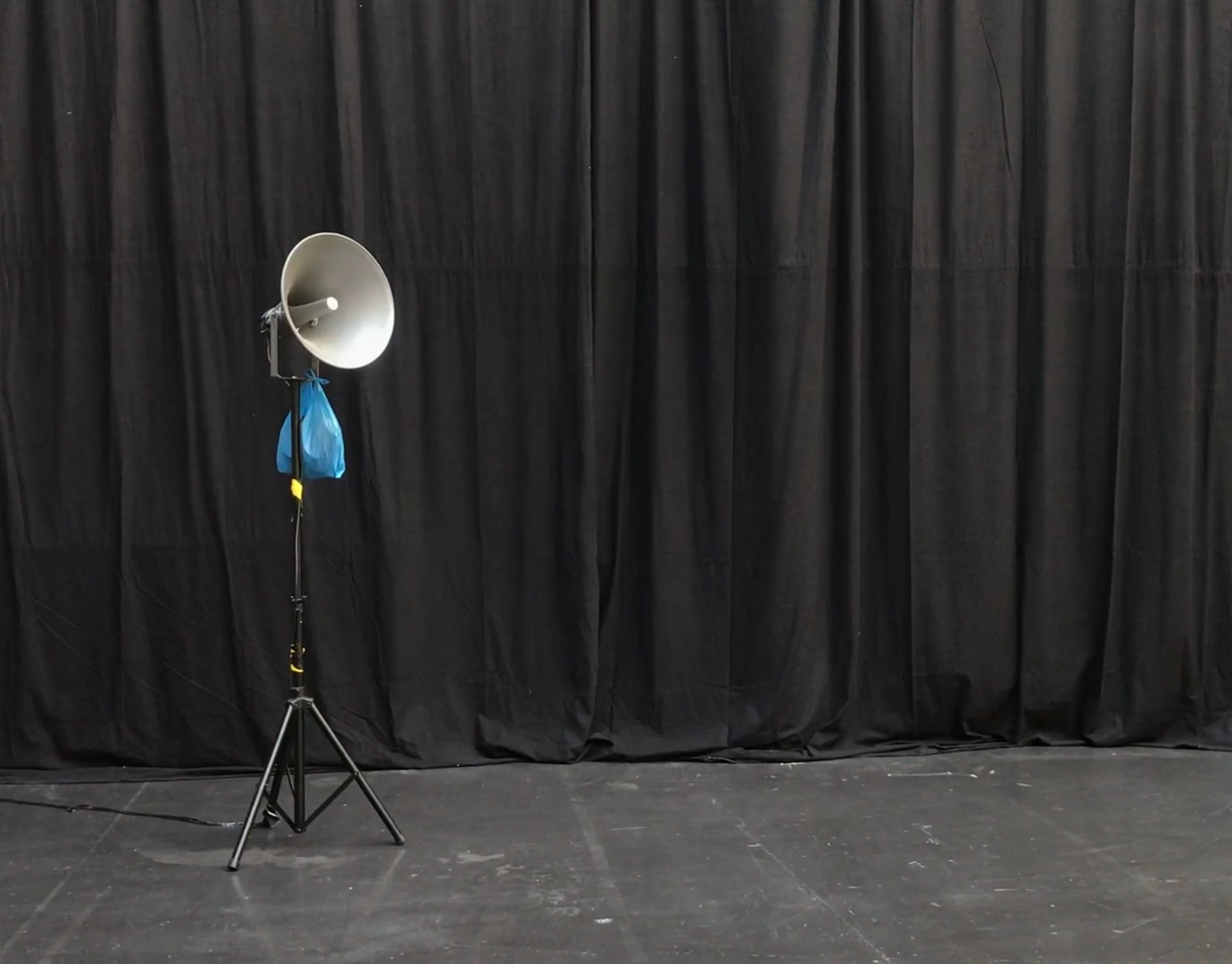
Throat
The loudspeaker was installed as an intervention in the ZKM museum’s corridor and worked for two weeks. Every fifteen minutes, it reproduced the phrase: “We use your ears and your eyes now!” Fifteen minutes is the time for a visitor to pass this corridor from one segment of the museum to another.
2018
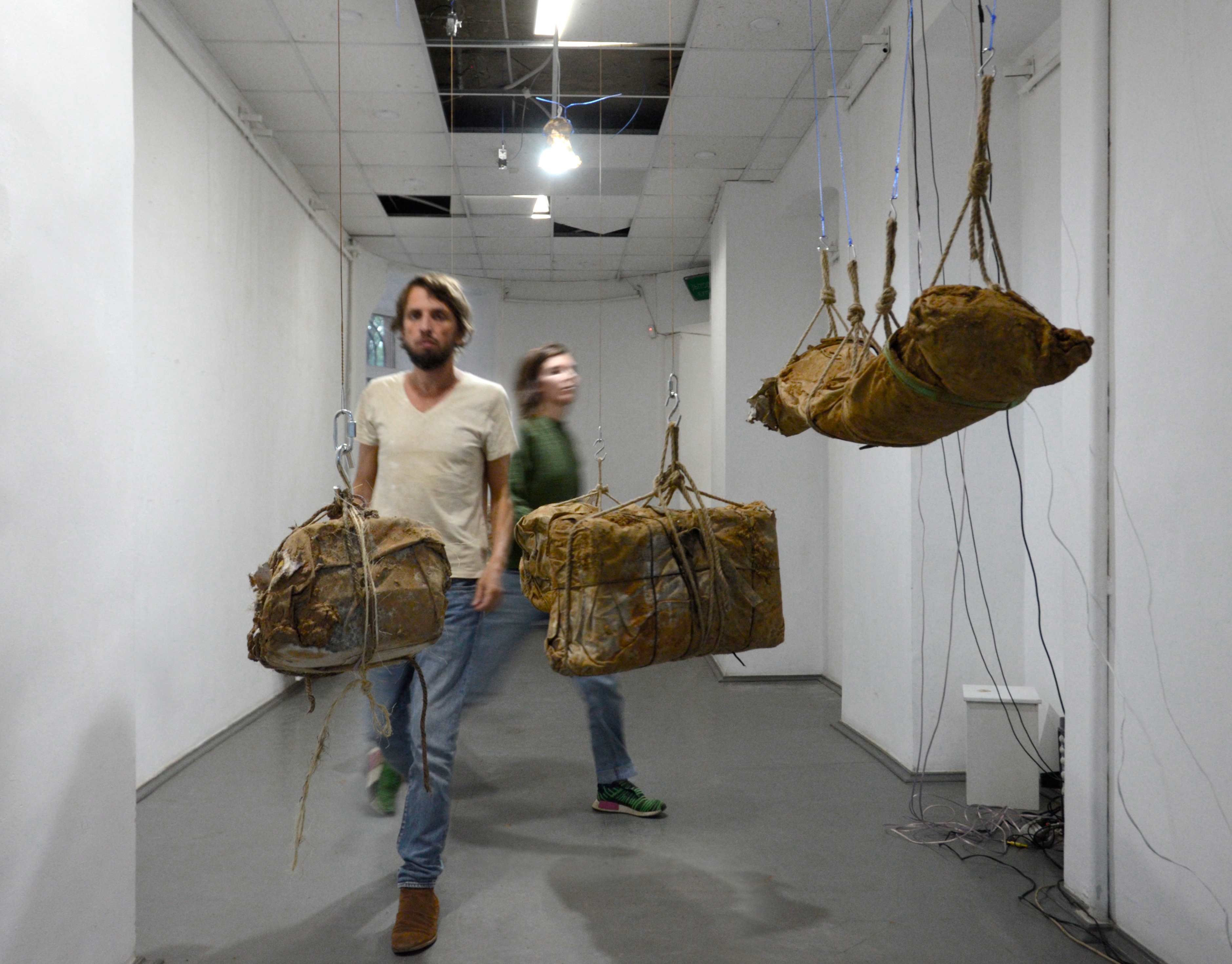
Autoarchaeology
Leaving Moscow in the fall of 2018 we buried the rest of our belongings (that could not fit in the plane) in a field at the Moscow River source. After six months, we dug them up and mounted them as a weight for the strings’ tension.
2019
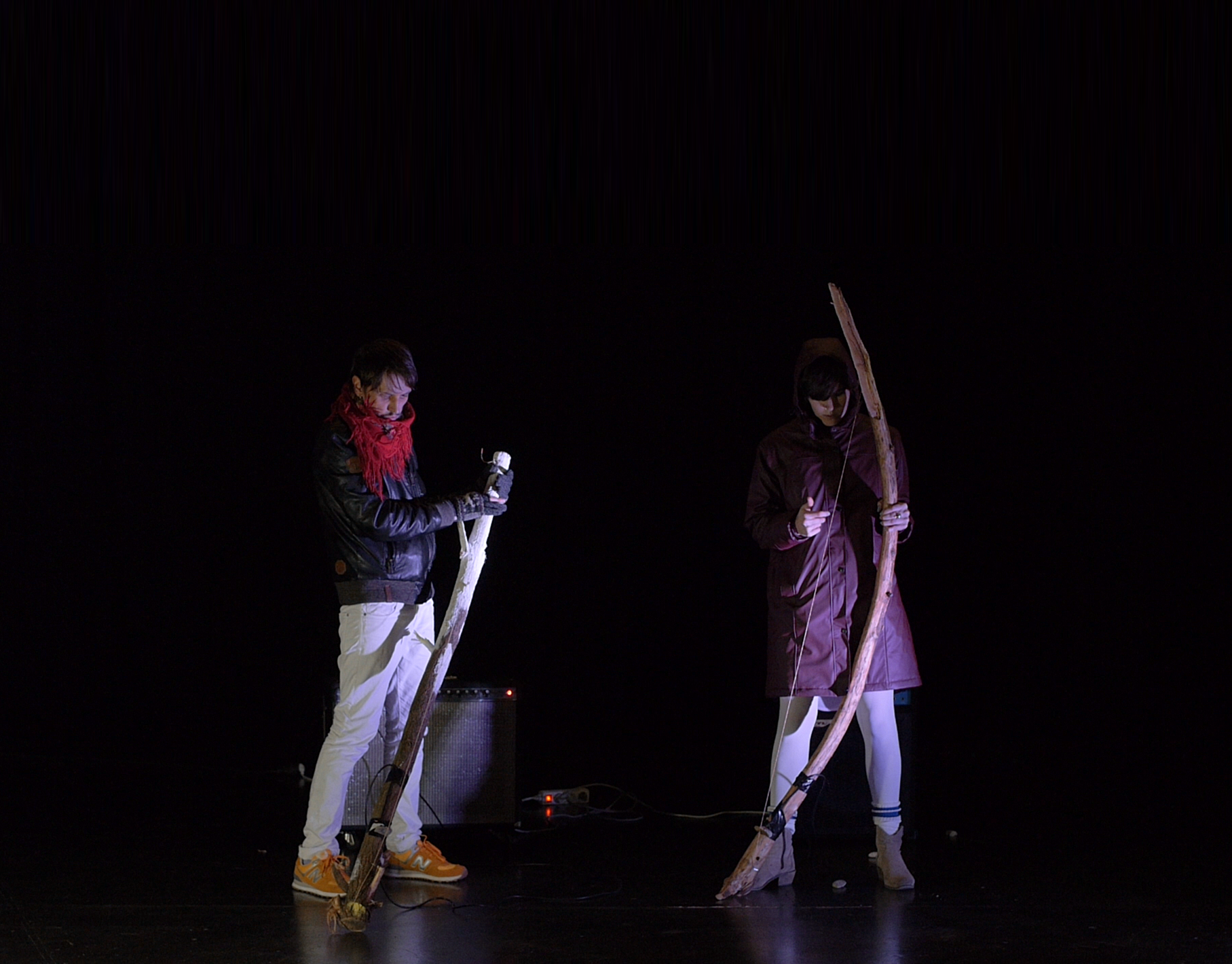
Poverty and Glory
Medium is the electronic version of the Pythagorean monochord. It is extremely simple — a tree branch, two stones, two nails, steel string, and a contact microphone. It is made anew every time, immediately prior to the Aliens' performance. It is the perfect tool for installing sound impregnated with overtones. The Medium and the sound from it constitute a singular art object, the installation of which in space takes place using special performative practice.
2018
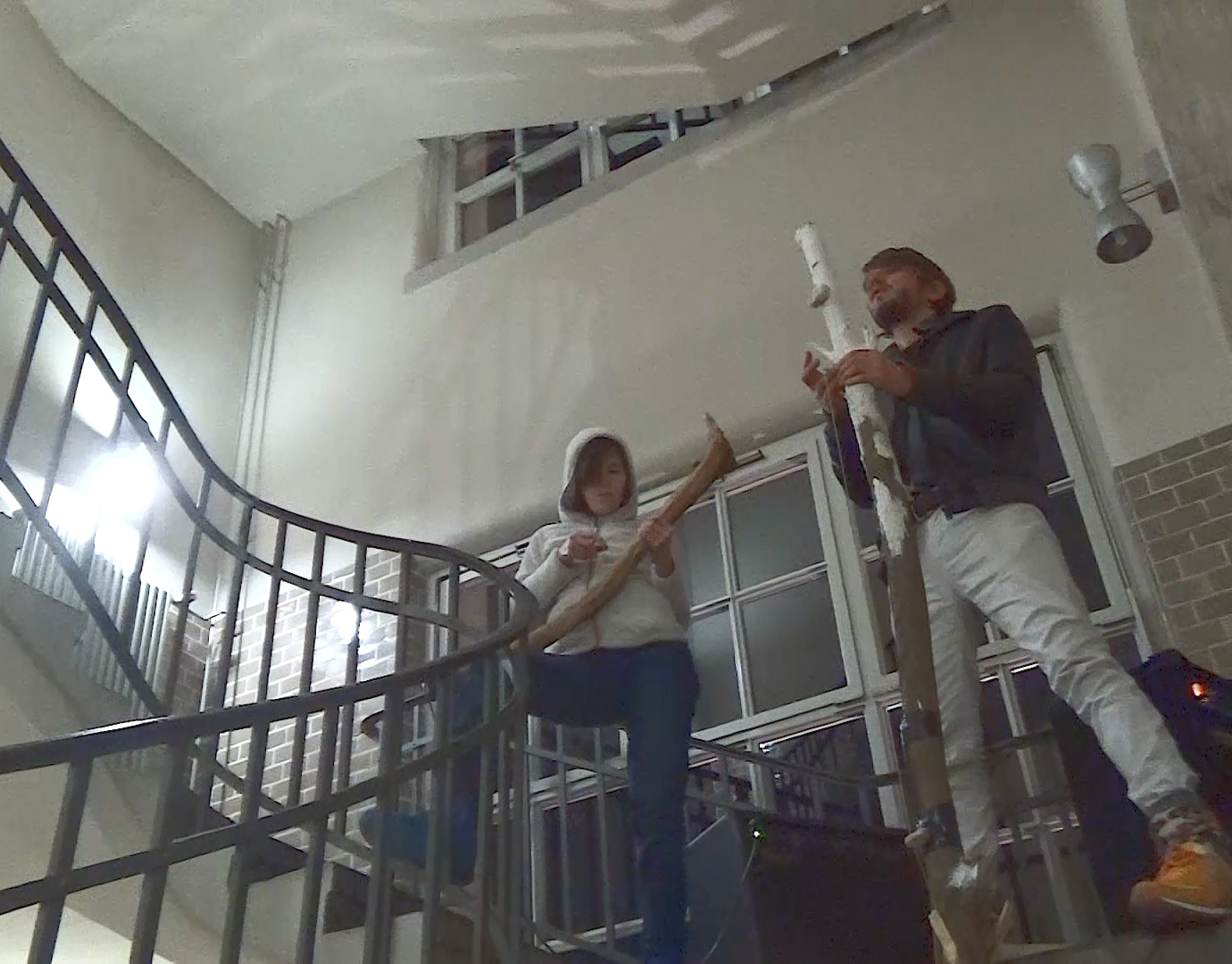
(Music)
Sound performance, viewed from the perspective of a contemporary art spectator unexpectedly turns out to be a provider of raw musicality. We call it (Music) in brackets.
2018
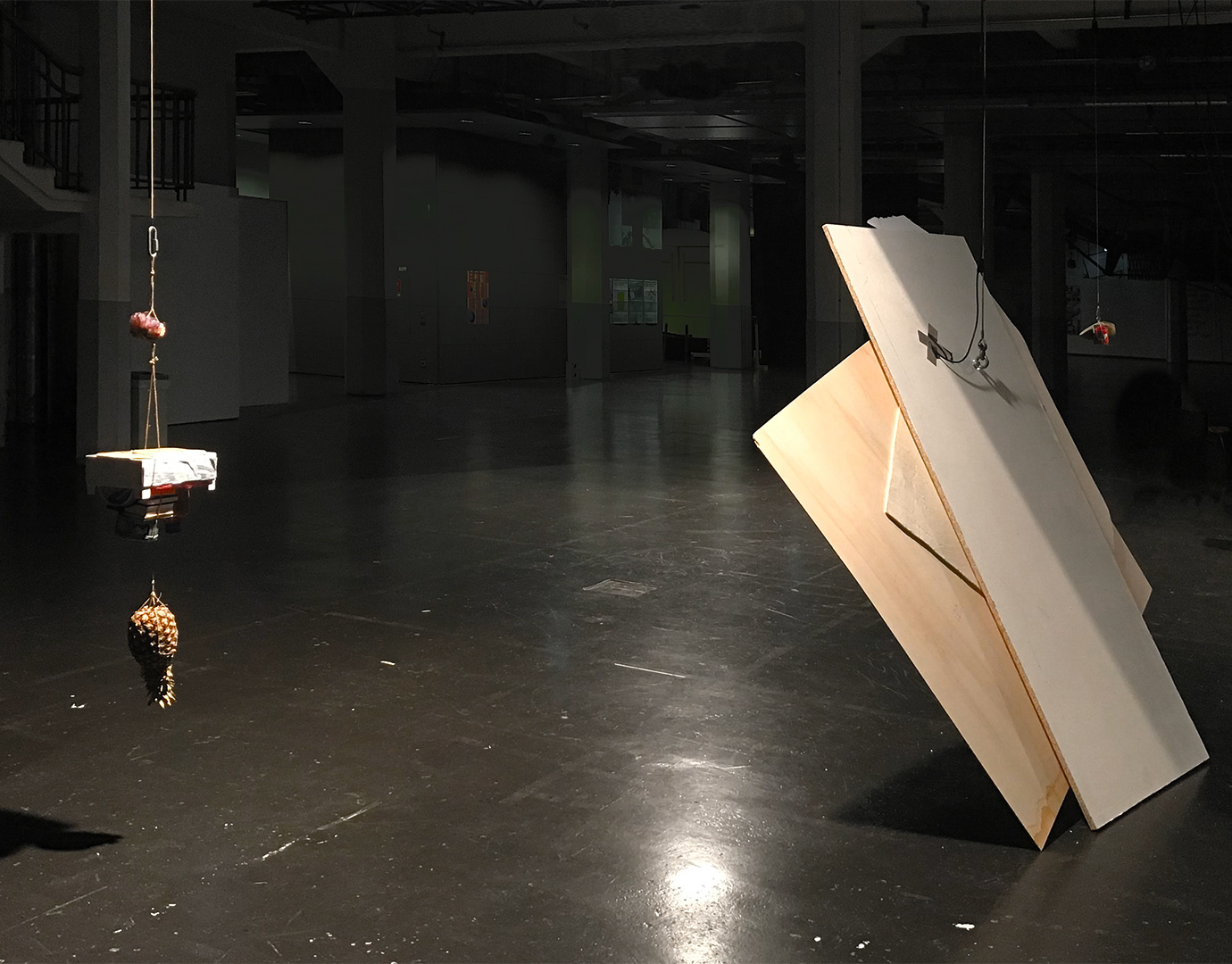
Strings
All personal possession of the artists were bounded together and suspended on the six strings as a weight for the tension. The strings were the drivers for the processual performing of the sounds collected and selected by the artists, especially for the event. Six suspended objects formed the playground for performative procedure lasted 6 hours until the installation got broken.
2018
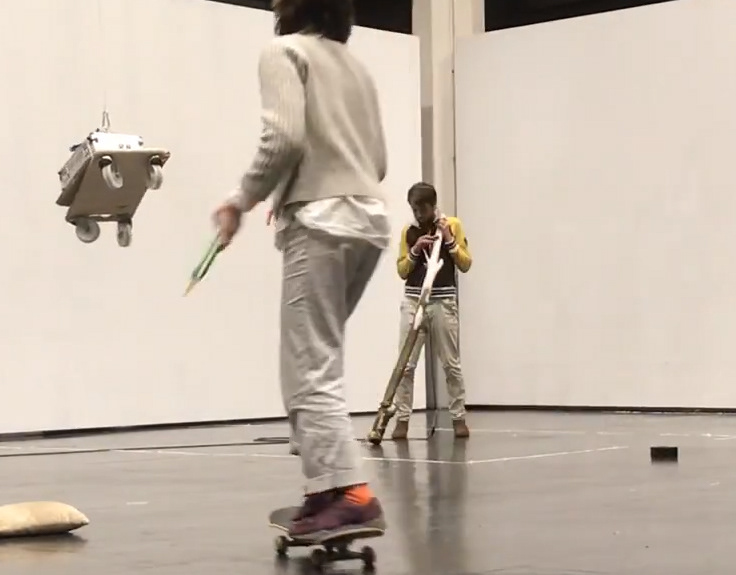
Paradise
Music that arose by chance from the fragments of a branch, a stone on a string and an electric organ in the hall of a large tired museum.
2018
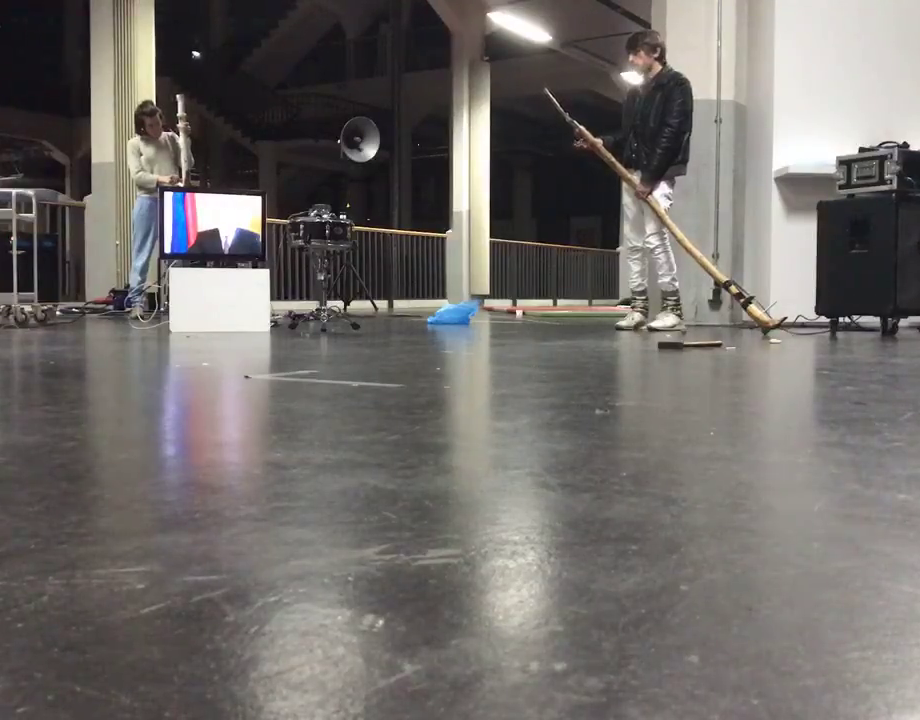
President
Marika Krasina and Anton Krivulya are trying to get Boris Yeltsin to play the drums.
2018
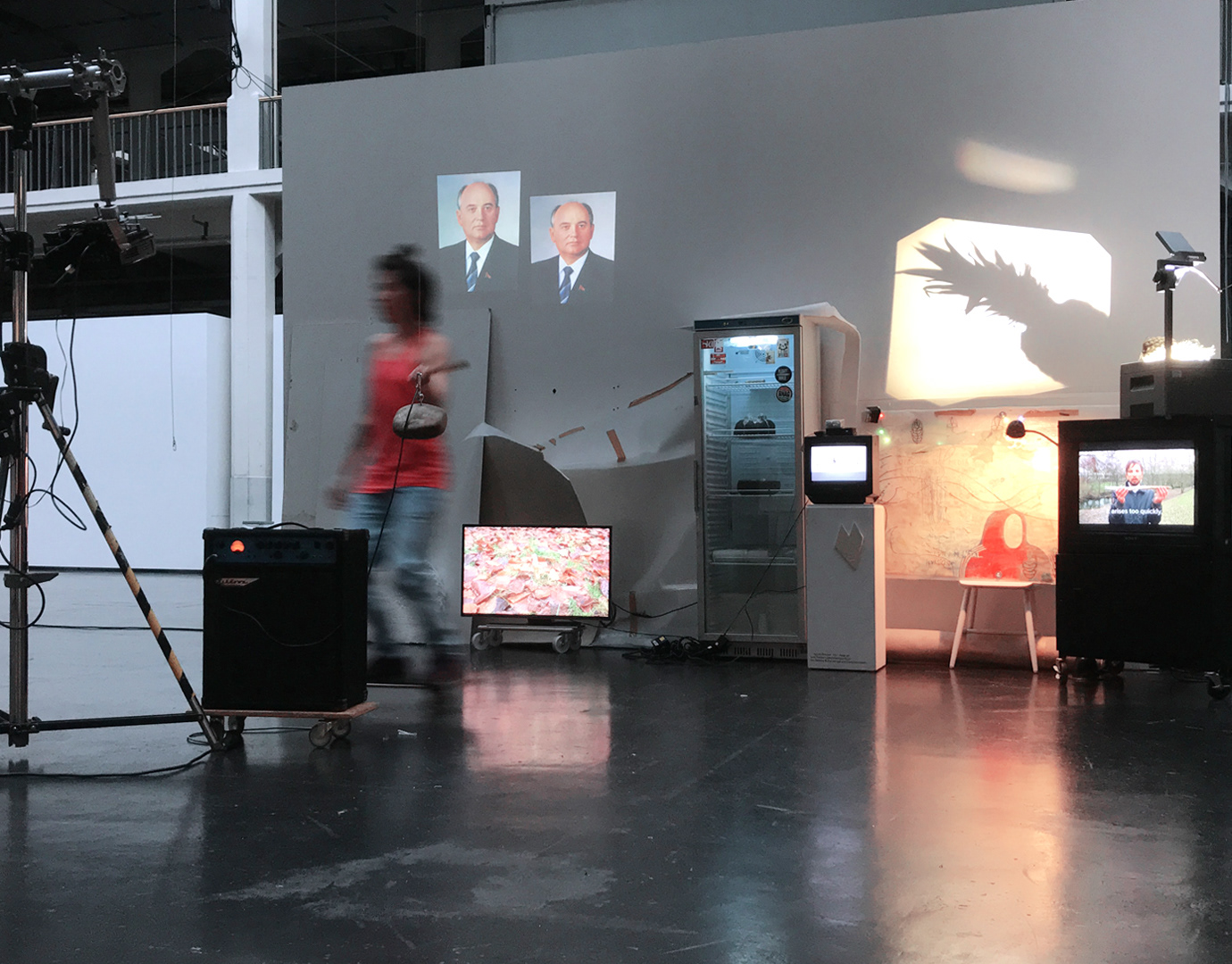
Tools of Disclosure
Tools of Disclosure is a part of Bubble Opera: a series of performative acts implemented by the Rabota on the territory of ZKM/HfG in Karlsruhe, Germany in 2017-2018 as an institutional intervention.
2017
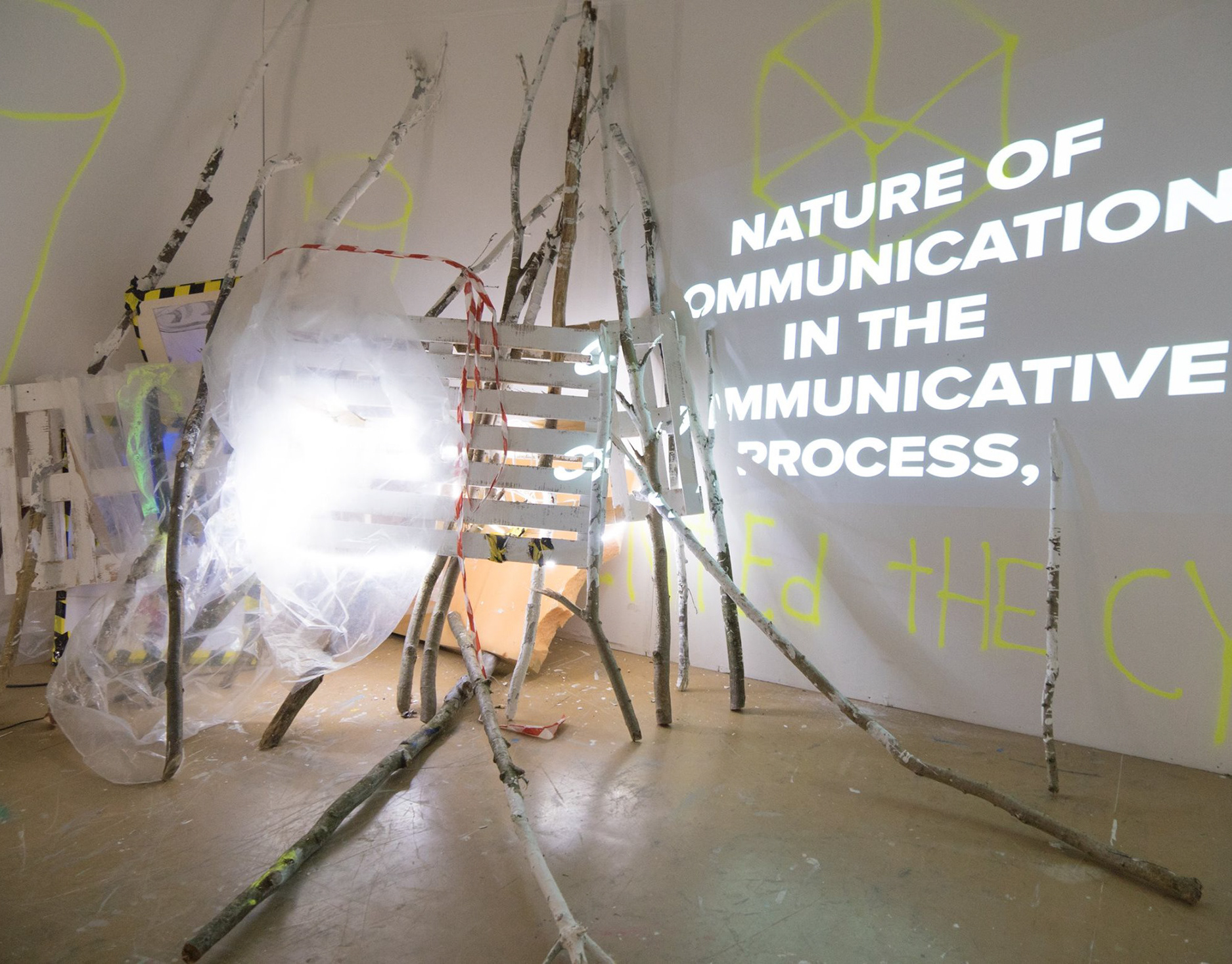
God Invented the Cyclist
Media Ecology, which can be reduced to the separation between medium and content, requires the establishment of particular autonomy and brings a political dimension to media studies.
2017
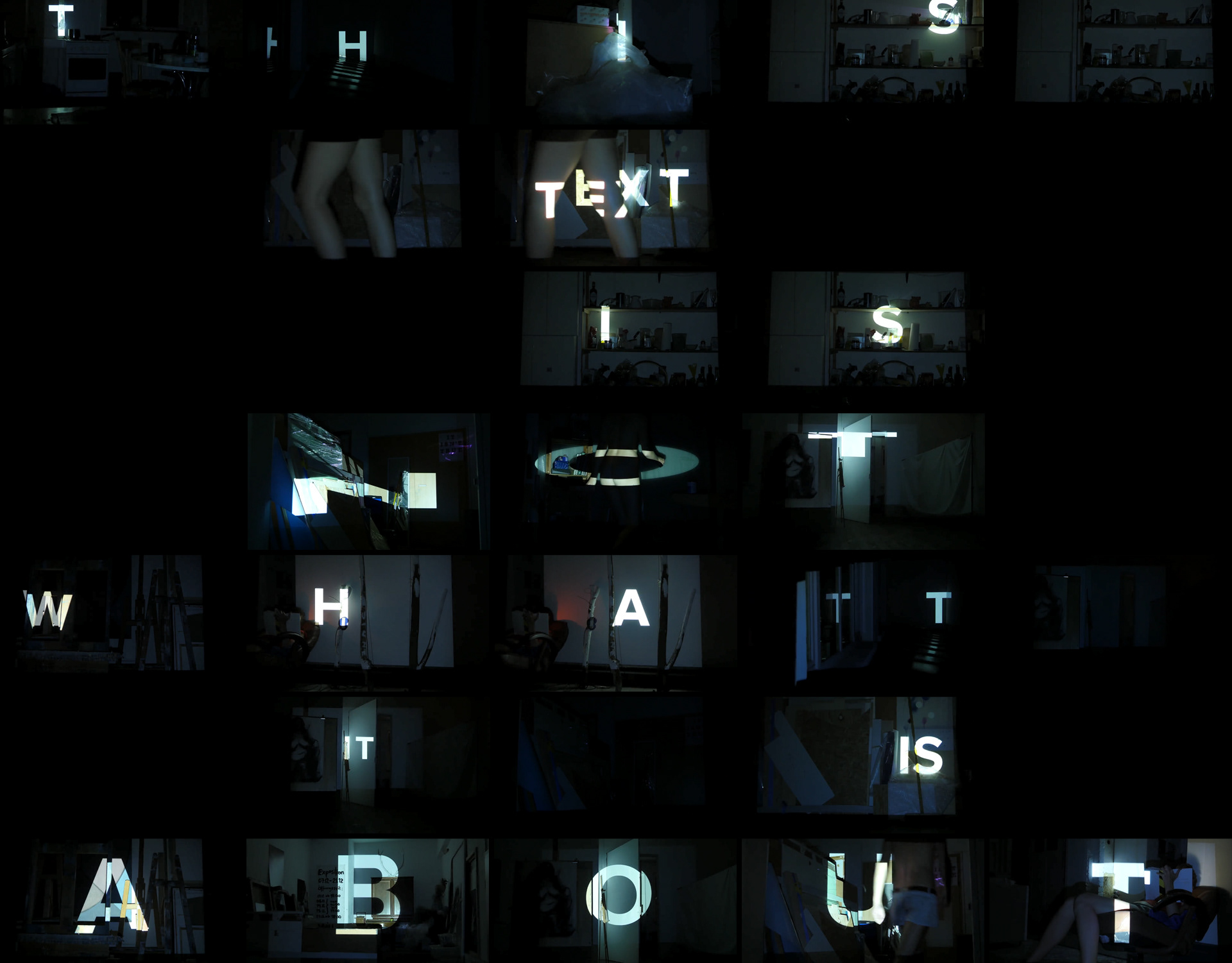
This Text is Not What it is About
The video installation captures artists offstage by the light of text projection during Summer 2017.
2017
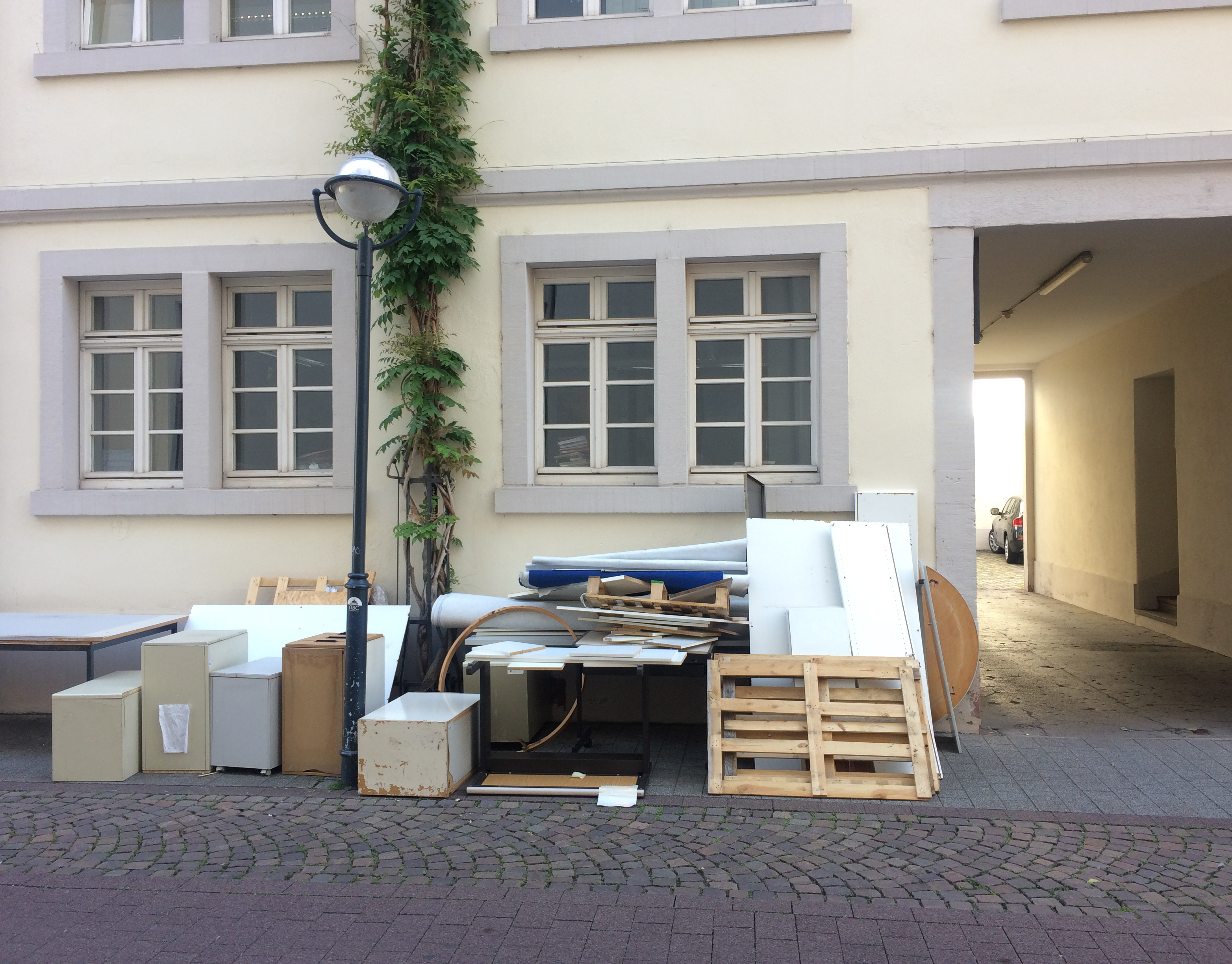
Goods
During the Booty Art (Beute Kunst) exhibition, Rabota tried to make the time visible, and these risky experiments led to death so many objects as artists were able to find at the streets of Karlsruhe. Booty Art (Beute Kunst) – the term invented especially for the exhibition at the UND#9 Festival in Karlsruhe, Germany. Thrown away student paintings, plates, exercise bike and two antic chairs from Markus Lupertz waste were found on the streets of Karlsruhe, modified, overpainted and then sold during the exhibition.
2017
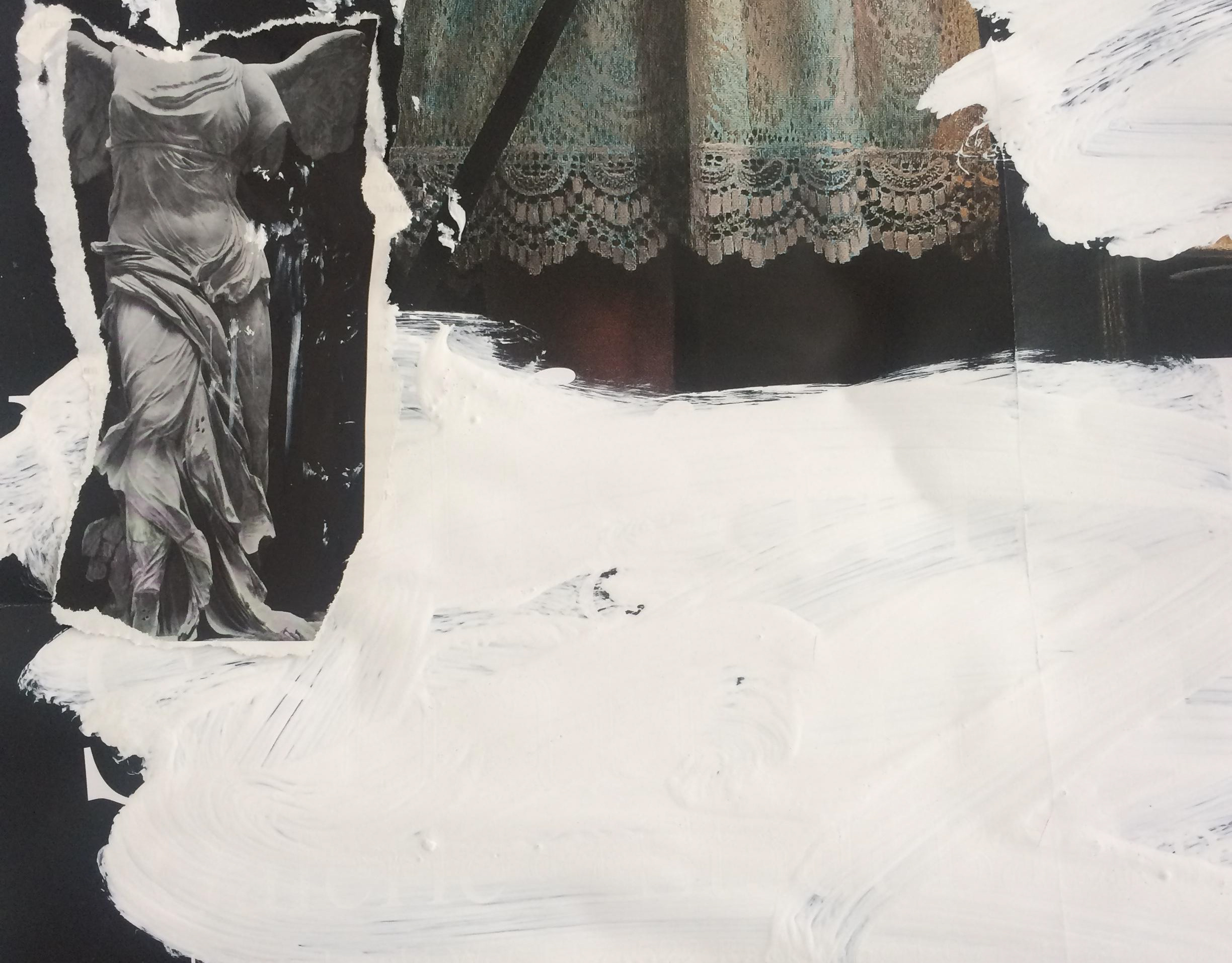
Content
During the Tidy Room exhibition, the Poly Gallery was filled with objects found by Marika and Anton on the streets of Karlsruhe: abandoned household appliances, furniture, dishes, and unnecessary things that were pushed out the door by the householders.
2017
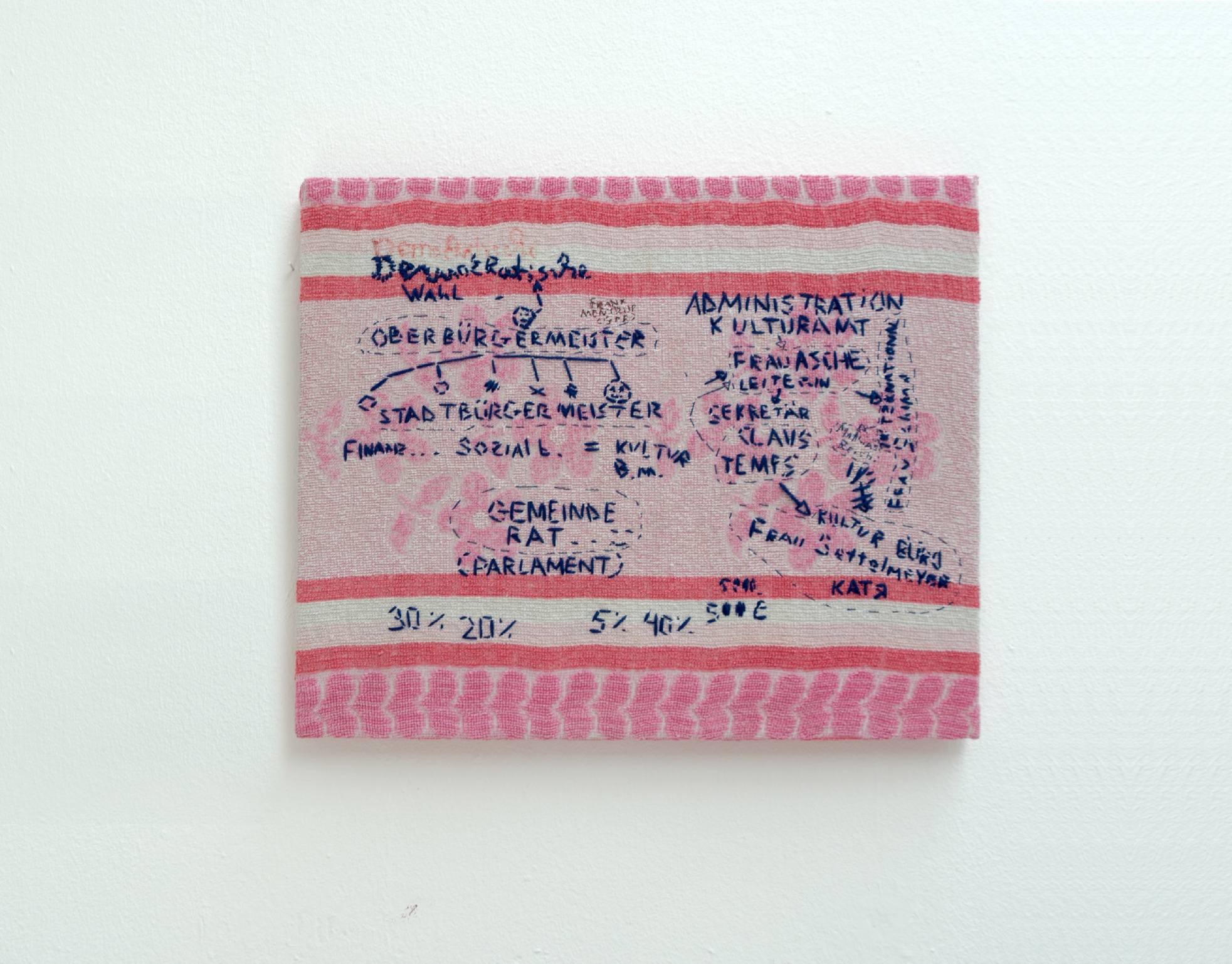
Strategy
A scheme of the administrative structure of Karlsruhe is embroidered on a towel as an explanation, how the art projects are financed by the government of the city.
2017
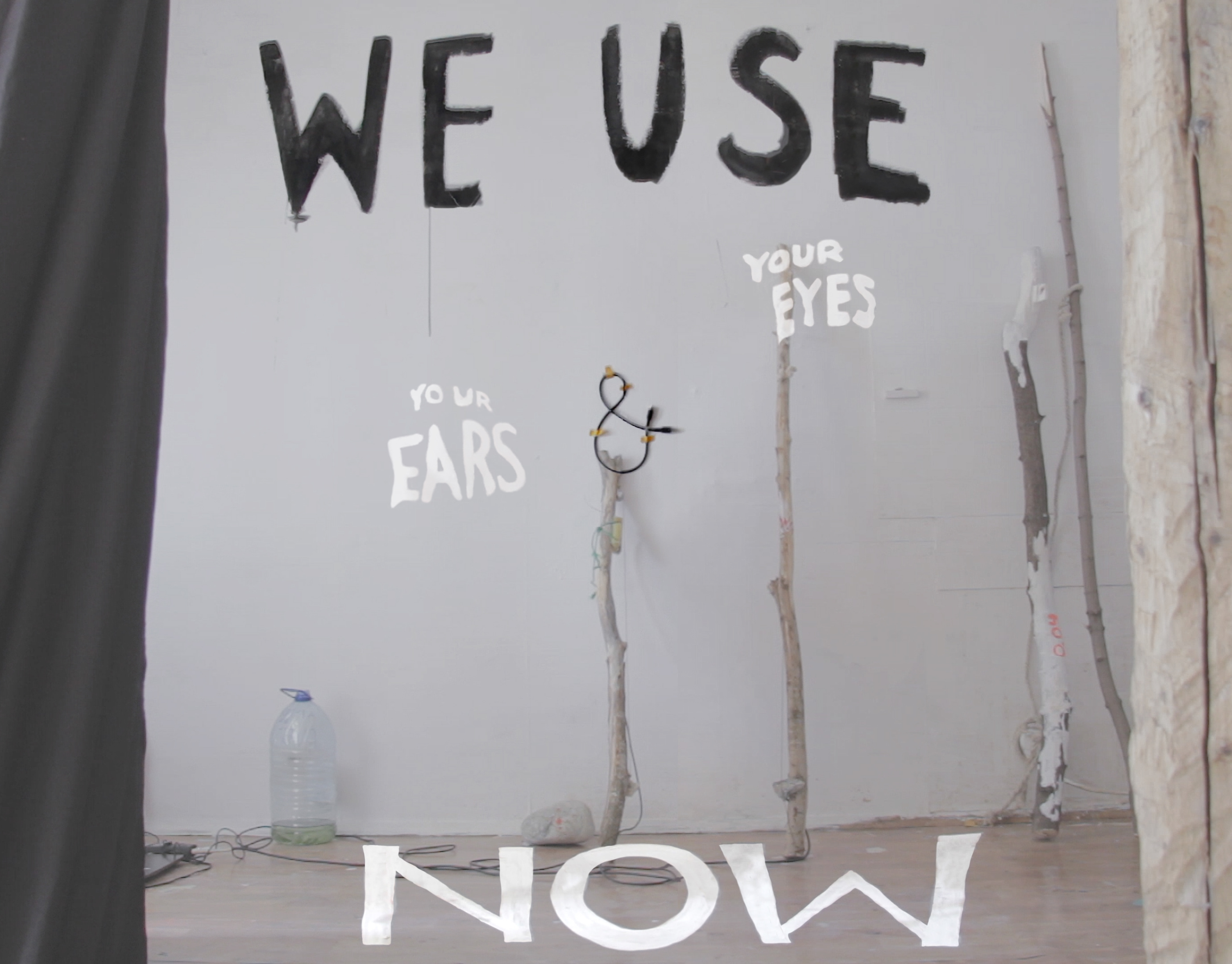
Use
Video that we recorded in the Moscow flat, in the days when we were passionate about an investigation on Medium.
2017
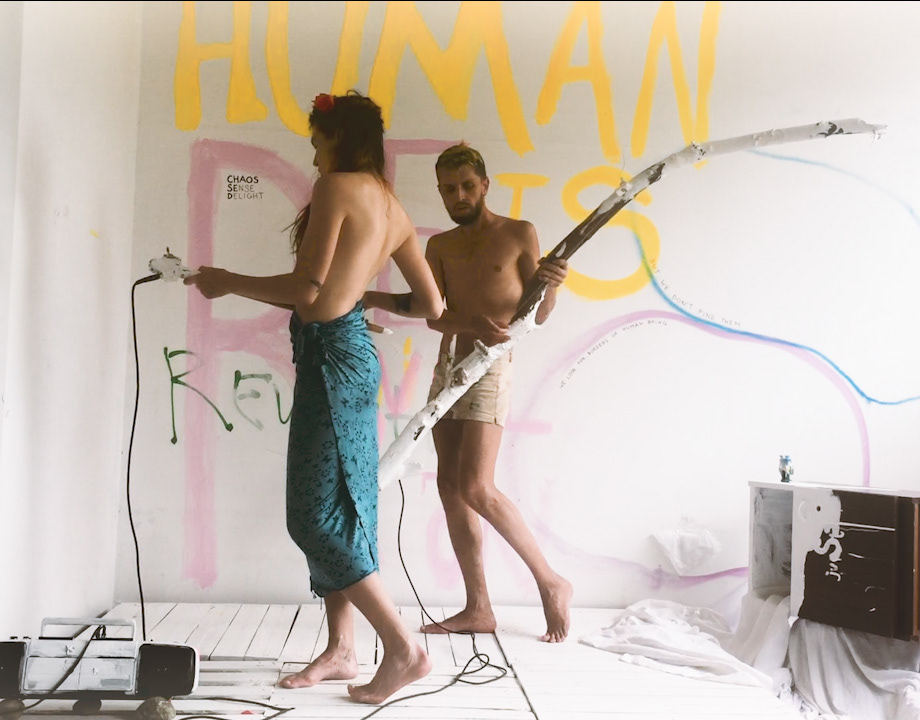
Human is a Revolution
The artists' atelier in Budapest turned in two months into a performative space in which artists experimented with research in the field of phenomenology.
2016
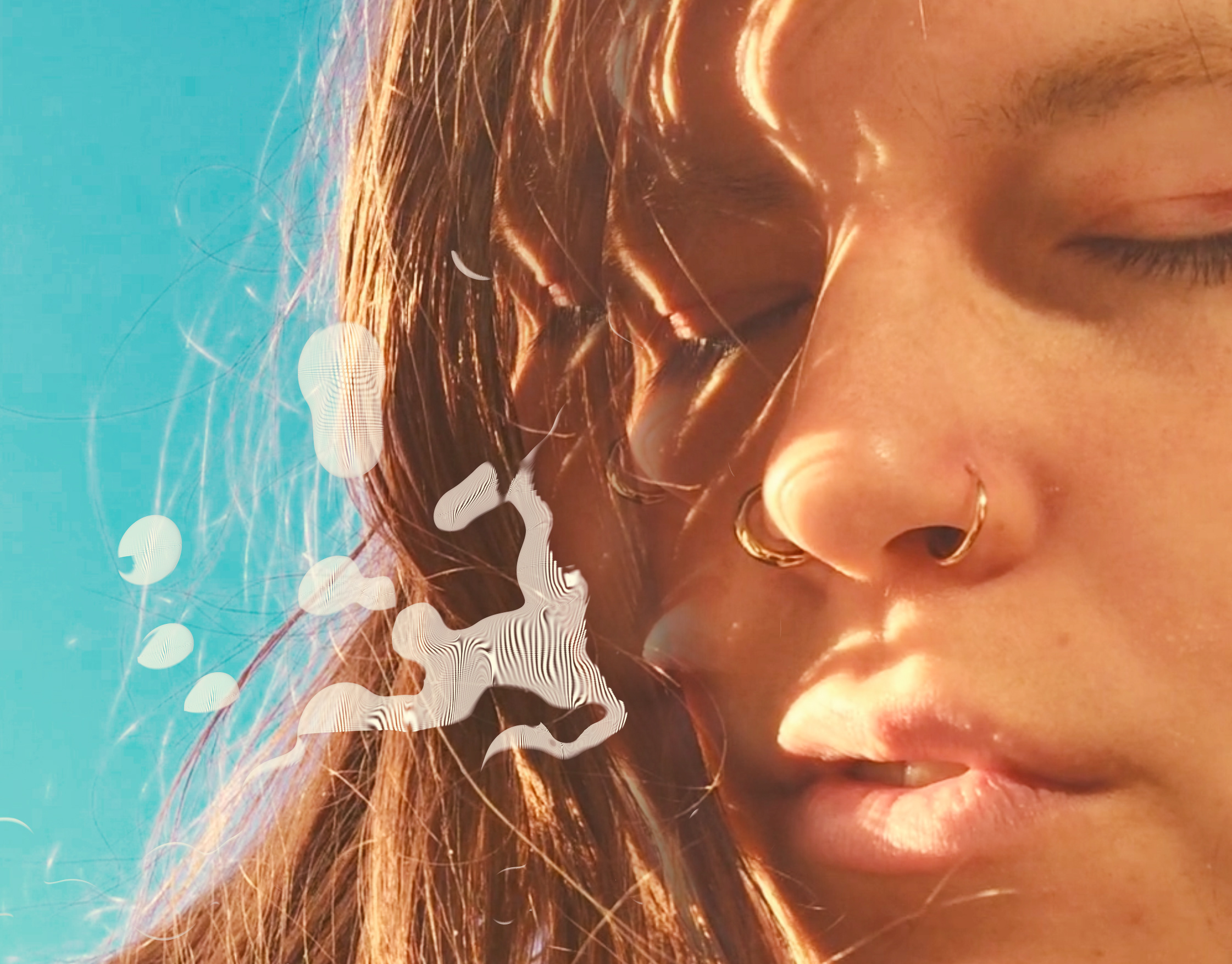
Watermelon
Two years of constant drift were rendered in 18 minutes of slashing montage.
2016
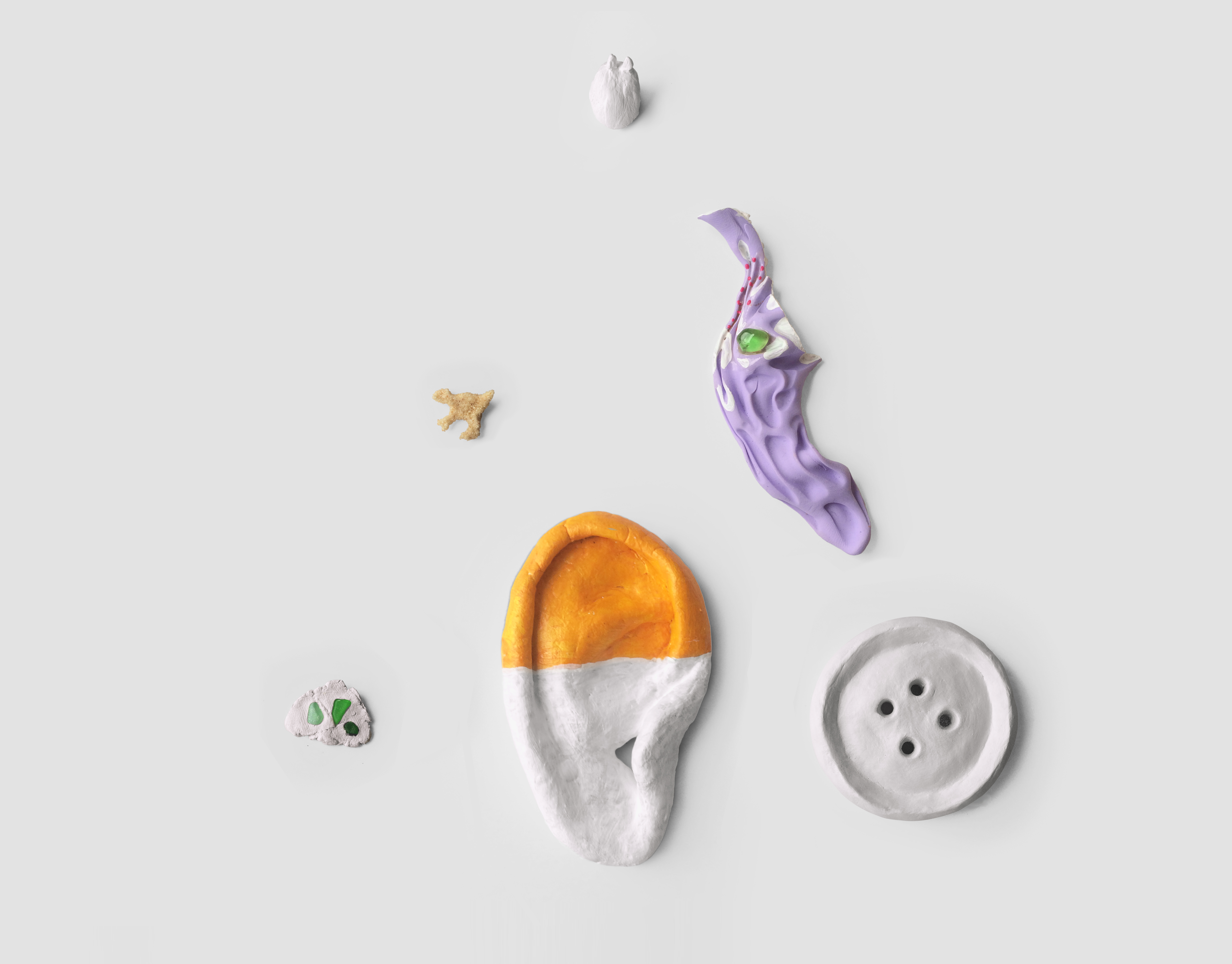
Six
The first model on the basis of the Six Stones Matrix was outlined by Marika Krasina and Anton in 2015.
2016
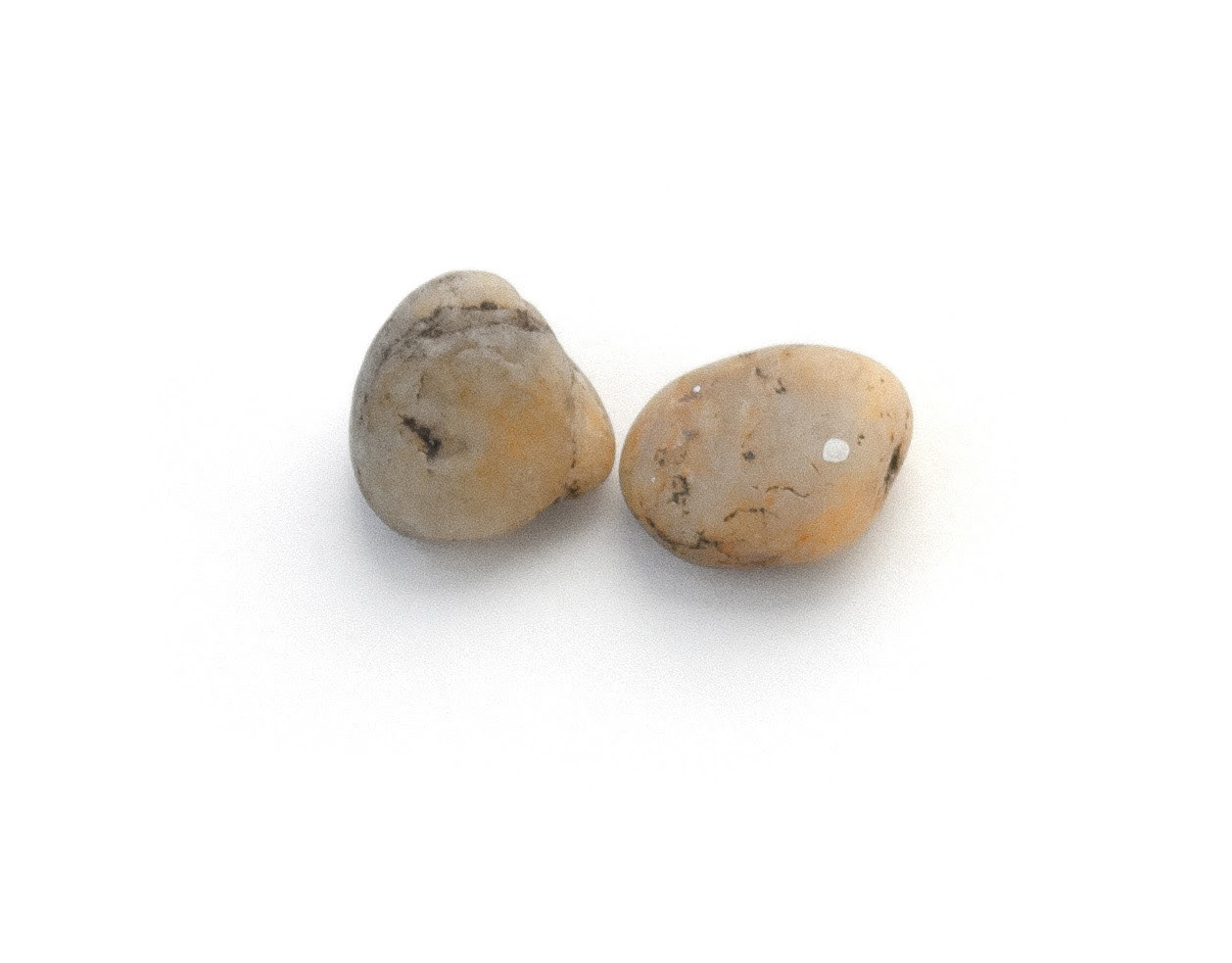
Stones
As a result of a performance expedition on the islands of Danube Marika and Anton discovered the relevance of the Universals Dispute for their own artistic practice and began the creation of their own topological system.
2016
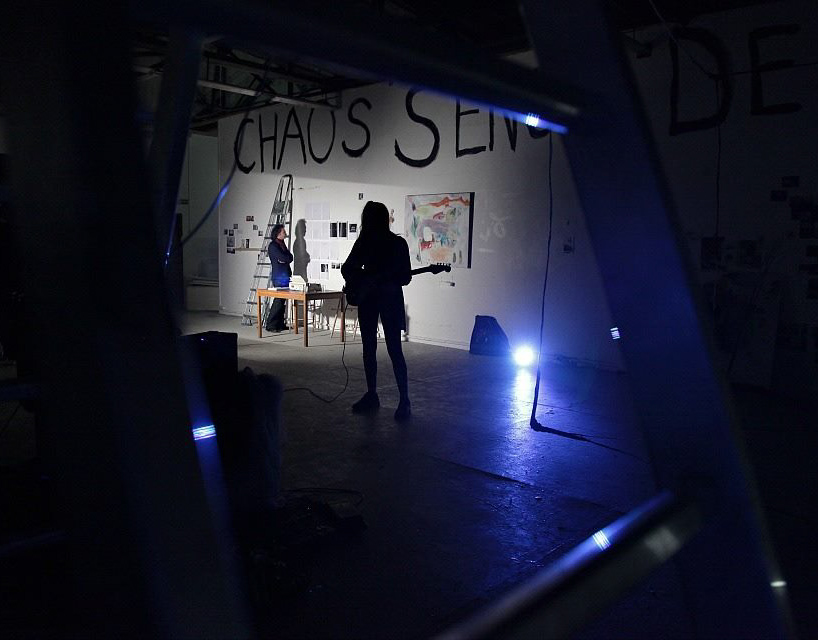
Collage
The Chaos Sense Delight Meta-collage show was held in Moscow in February 2016 at the Burakova Street Atelier. It was one of the last attempts to invest in art production, namely analytical painting. It brought the artists to Moscow, to the infamous studio of the Smirnov and Sorokin Foundation on Burakova St.
2016
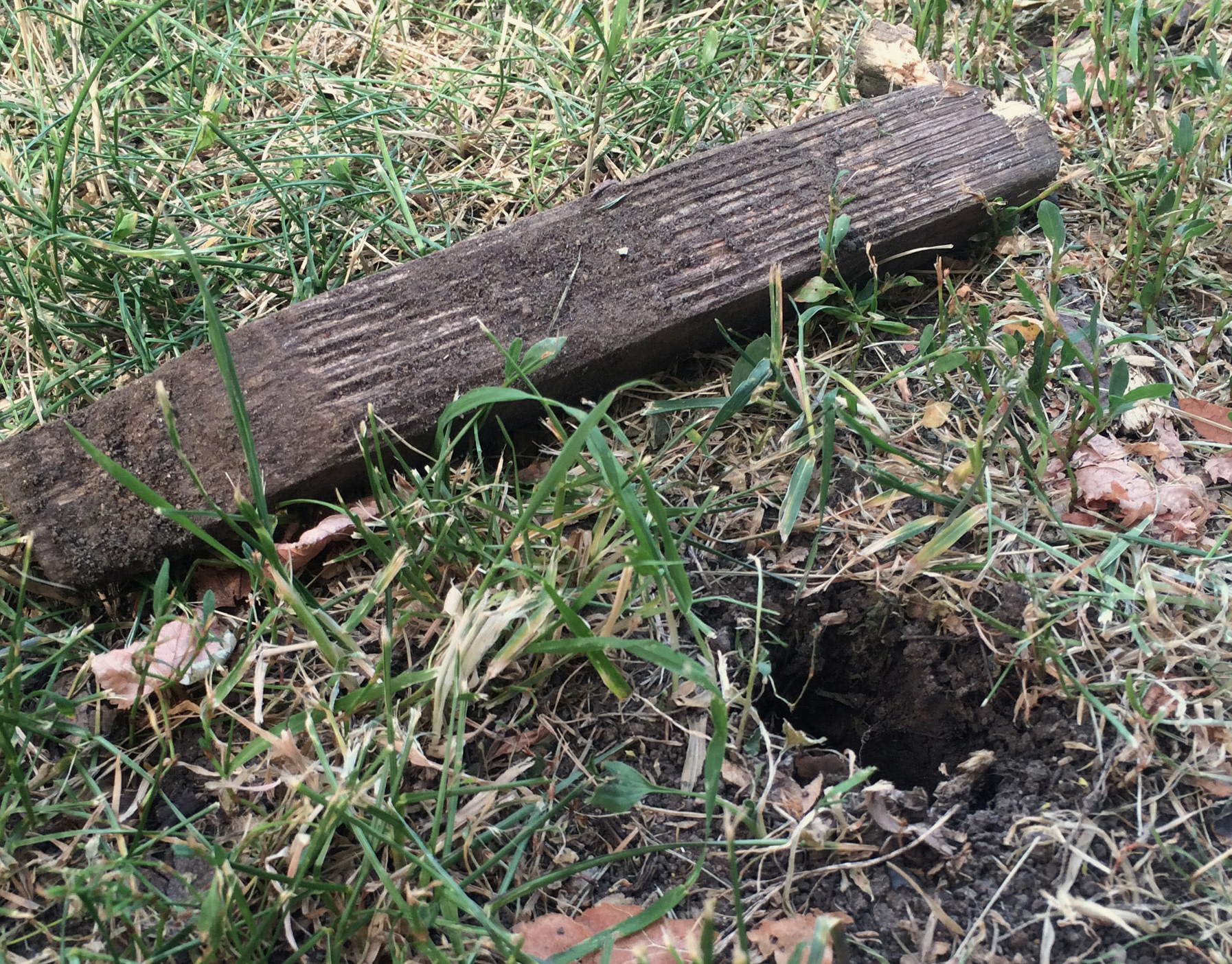
Fid
A Fid is a tool that creates holes in the ground equal to itself.
2016
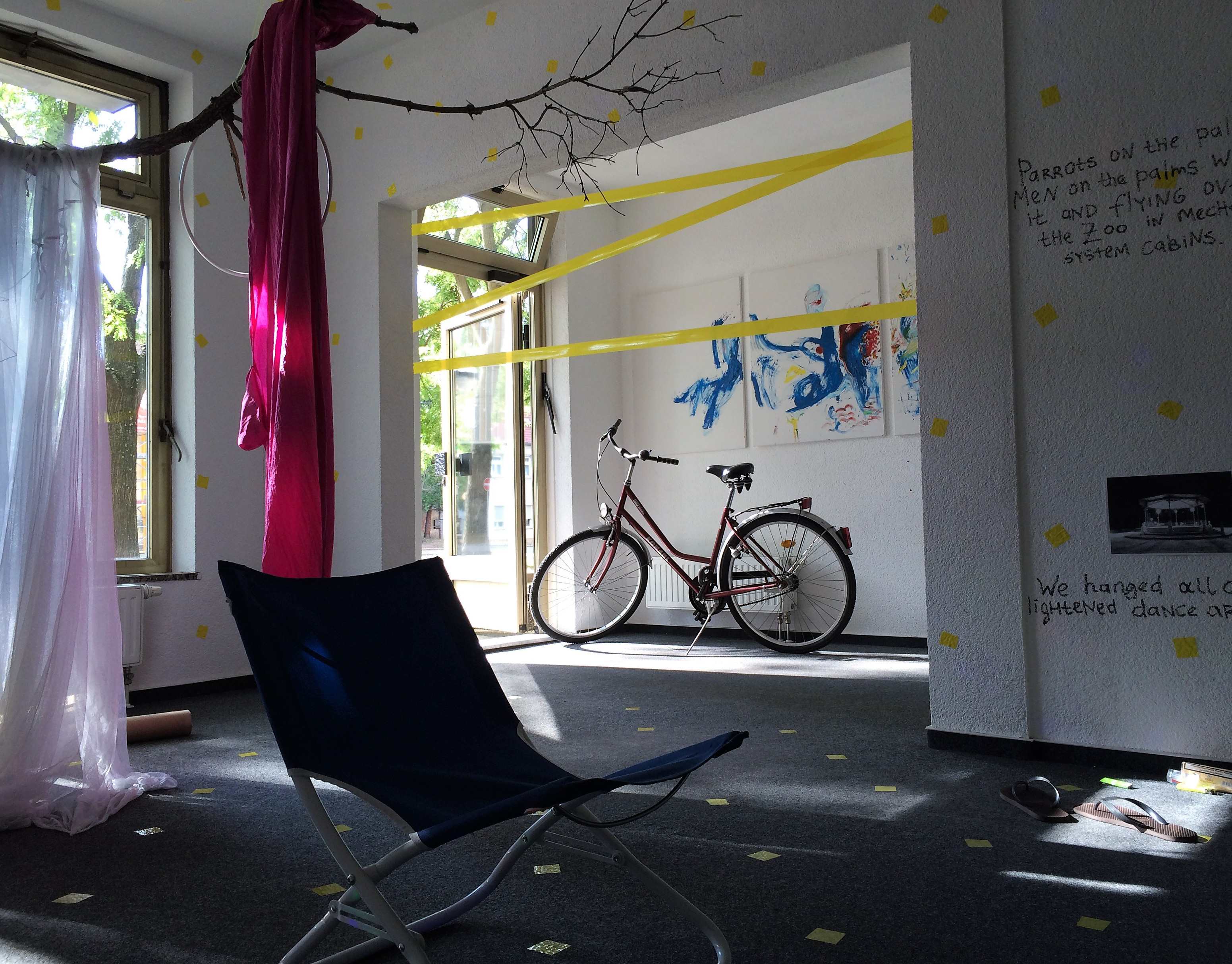
Exhibition
In August 2015, Marika and Anton recreated the details of their robbery in Barcelona. The exhibition in Dresden consisted of a story about events, a video on the screen of a mobile phone, a list of stolen things, and the installation of those things that remained after the incident.
2015
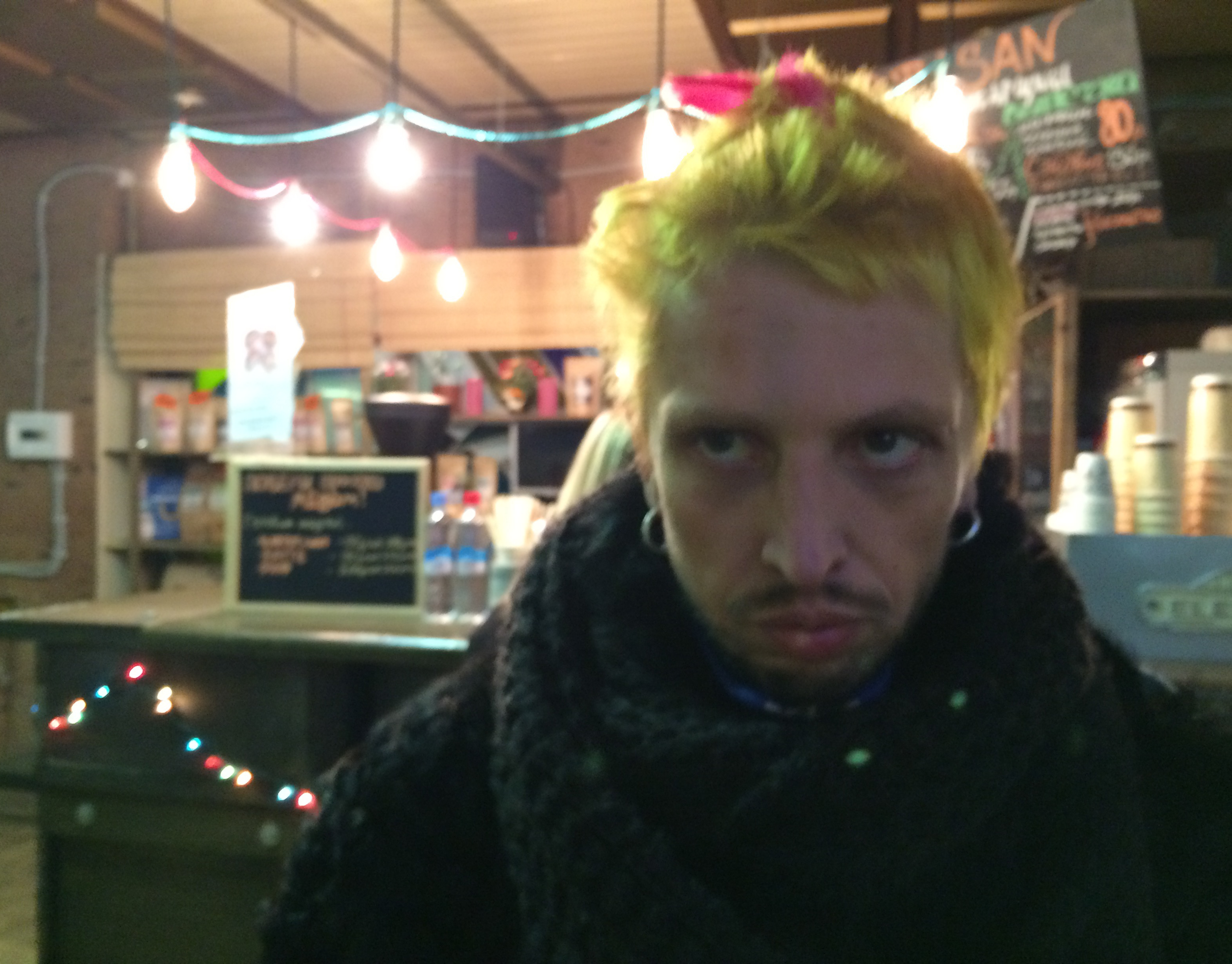
Reutovo
Video from the Moving series, rendering the random circumstances of the life of artists in Moscow in February 2016.
2016
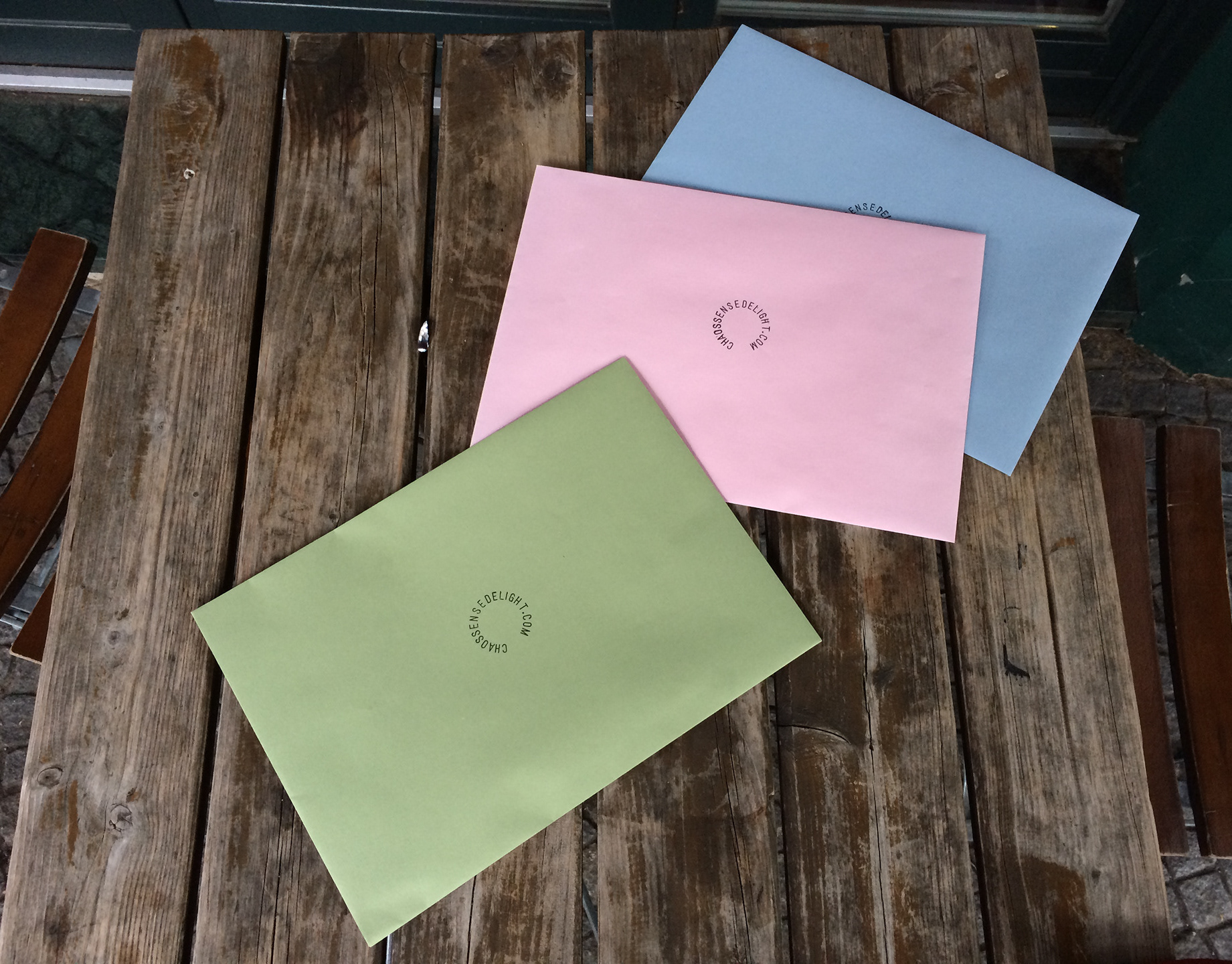
Index
The scroll of artists' private possessions was compiled on June 21, 2015, in the Dresden office where Marika and Anton used to live at that time.
2015
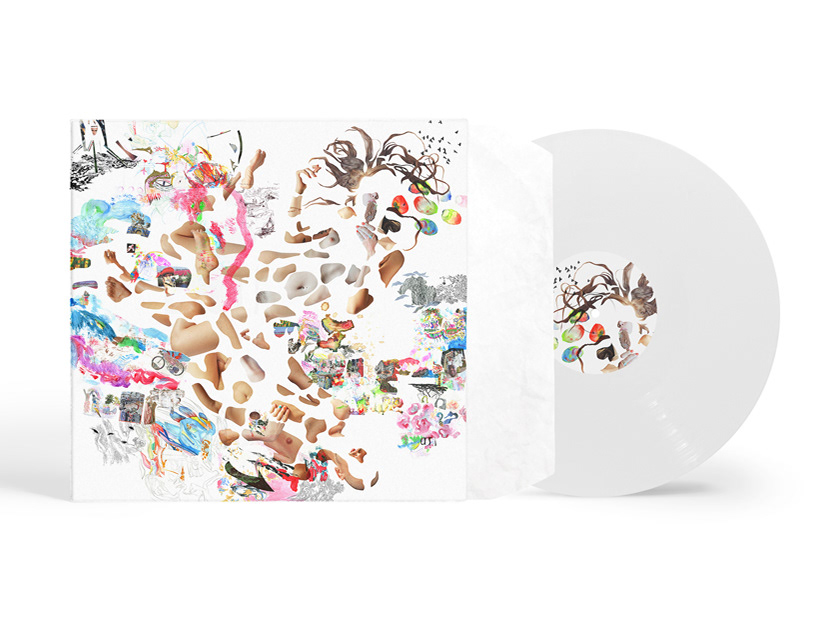
Chaos Sense Delight
In February 2015, we sat down in Dresden with cassettes and acid and made this album about what it means to be torn into shreds.
2015
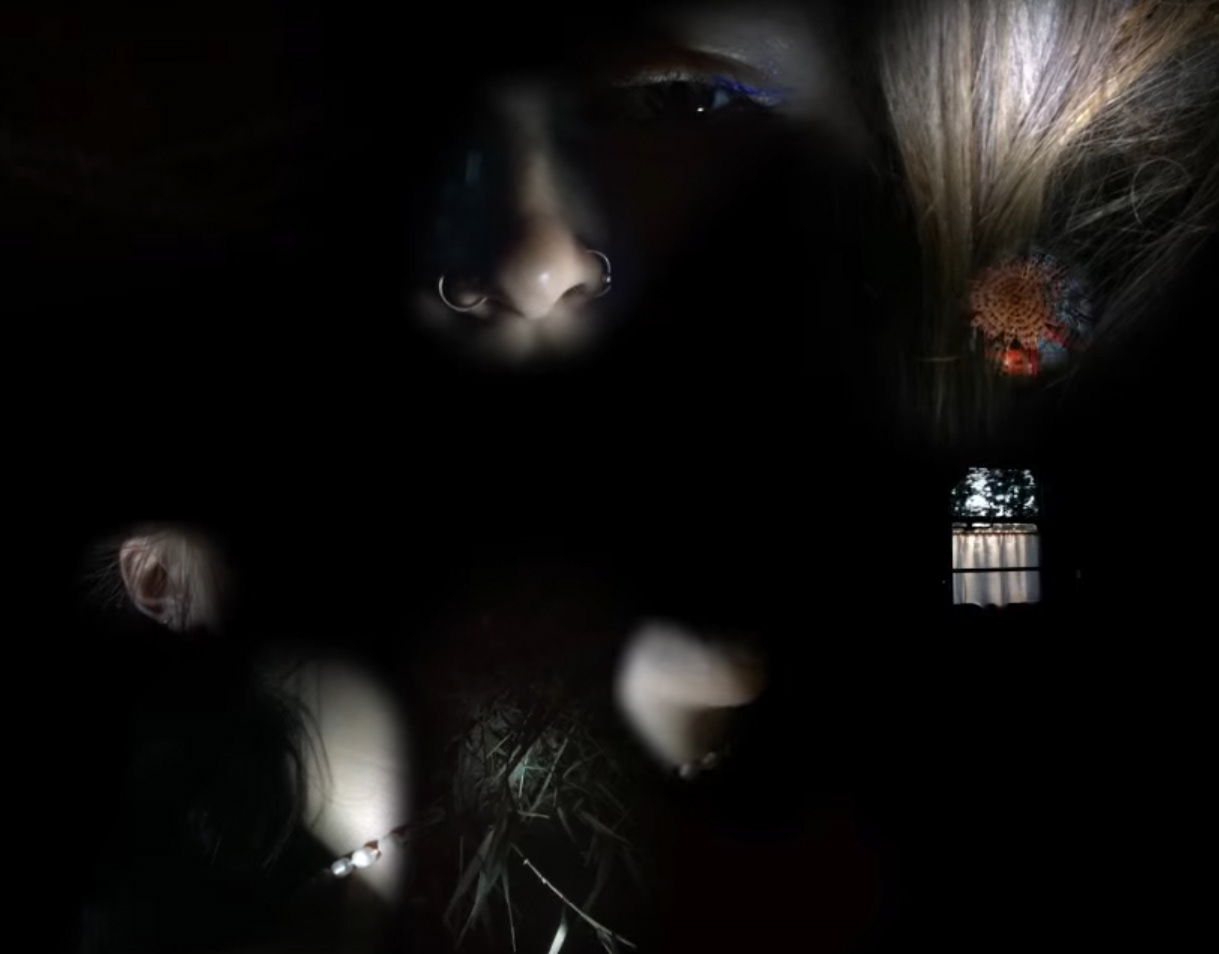
Manifesto
We are just points in the chaos of oscillating things. Our contours blur and blend entirely, but still, we do not become one.
2015
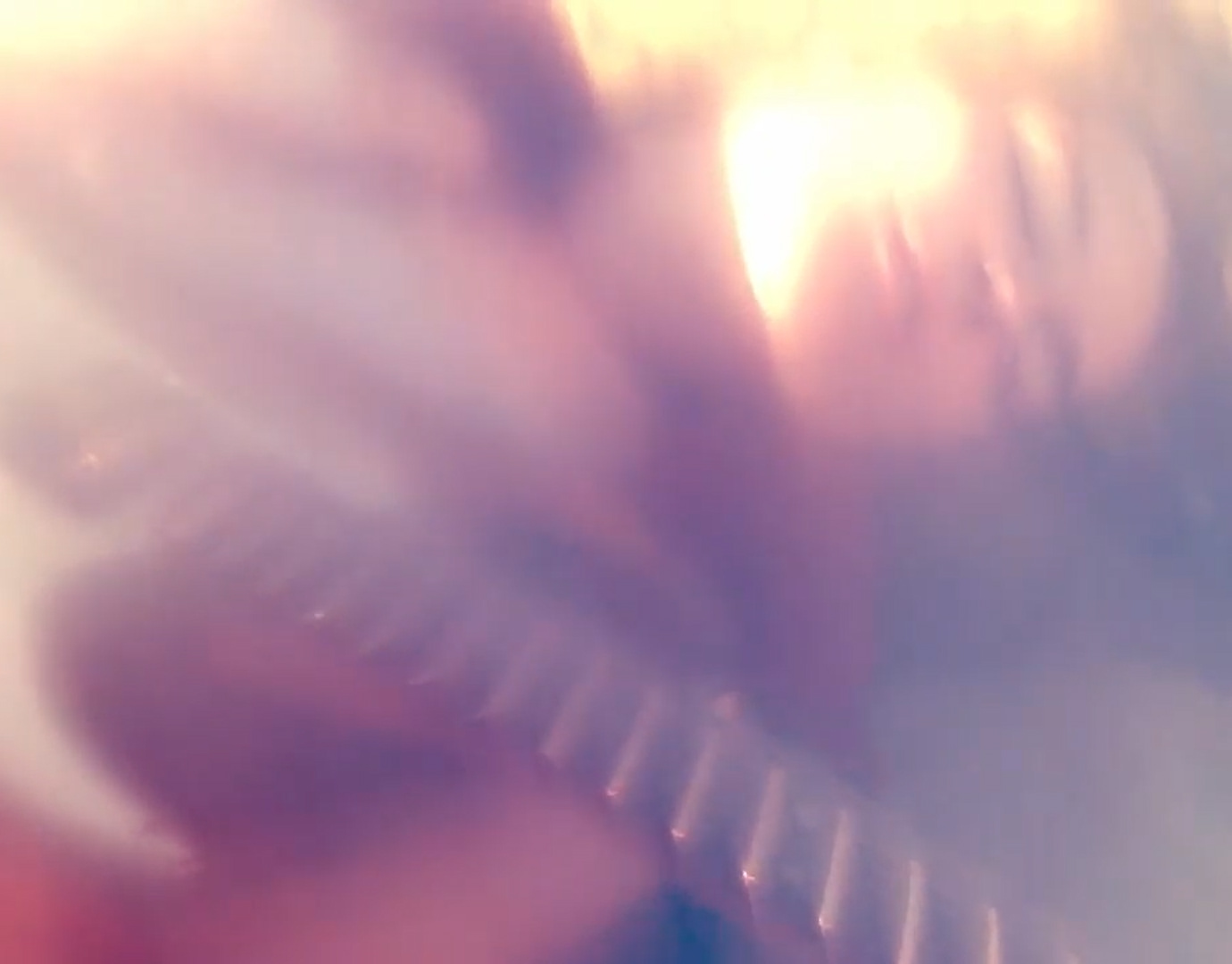
Pescara
Why Pescara?
2014
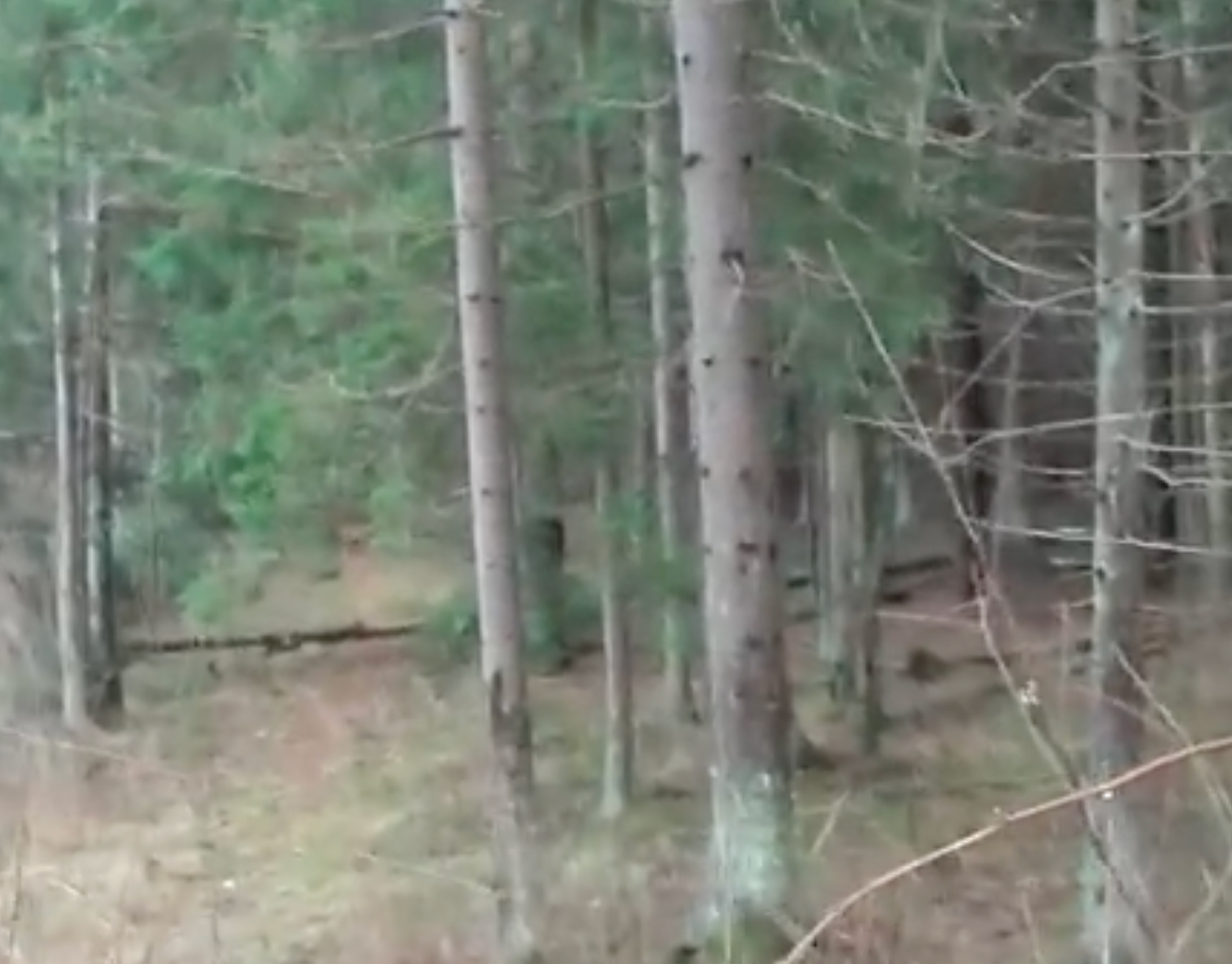
Jubilation I
A group of participants was invited to wander through a hilly, forested area, producing sounds until they began to hear each other. Relying solely on acoustic signals, the participants followed the sounds and gradually converged.
2009
